












Brian Dillman | RSPA CEO

The first time I heard Jim Baugh speak—former GM and then president of Wilson Sporting Goods—he defined “grassroots” in a way that stuck with me. “We work with people where they work, court by court, shop by shop and club by club. We can’t do anything from these ivory towers we work in.” He was fired up, pacing, his forehead red with passion. That definition resonated with me because it reflected how I was introduced to the tennis industry. I helped with summer camps, mr. Pee Wee Tennis, kids’ clinics and more. It was never about the money—it was about giving back. Older players had done the same for me, and generous adults took the time to teach me the ropes, sportsmanship and a love for the game.
Grassroots work is at the heart of what we do as an association—and has been for nearly 100 years. We engage with every member, club and facility at the divisional level, largely through the incredible work of our executive directors, board volunteers, active members and coach developers. Our coach developer program began in 2018 to oversee local workshops and certification, a modern evolution of the testers, once used by the USPTA, building on their legacy and continuing their exceptional work. Many of you likely remember them and the incredible work they did. I was fortunate to have John Ingram as my tester in 1991. Why was that significant? Because he made learning fun, provided mentorship and connected me to the Dallas tennis professional network. John had a reputation for helping anyone who asked, embodying the grassroots spirit that has served our profession well. He also introduced me to other professionals in town, helping me build my network and confidence as a new coach.
While the title may have changed, the grassroots foundation of the Racquet
Sports Professionals Association (RSPA) remains strong. Our coach developers serve as our frontline representatives, connecting new members with our 14,000-strong national network. They do more than teach—they mentor, inspire and help professionals see a lifelong future in this industry. Similar to racquet sports sales reps promoting balls, racquets and apparel, our coach developers deliver top-tier educational workshops while fostering connections. Nike created a similar approach with their “Ekin” reps (Nike spelled backward), who specialized in educating customers about shoe technology and promoting the brand. However, unlike corporate reps, our coach developers focus on something much more personal—shaping careers, not just selling products. My time at Wilson gave me firsthand experience of this model. We had Tech Reps who functioned as the educational arm of the company, constantly hosting demo days and grassroots events to showcase new products and technology. As a matter of fact, I found a picture of me about to don the mr. Pee Wee costume to do a Wilson event in Baton Rouge back in 1992.
Now, under our newly rebranded association, our coach developers— alongside our executive directors and divisional boards—carry an even greater responsibility. They are not just educators but also ambassadors of the RSPA brand. Our divisions are powered by passionate members and each continues to build a technical development team of brand ambassadors. Across the country, we currently have 30 tennis coach developers, 26 pickleball coach developers, one for platform tennis, two for squash and one for padel. As our industry expands and workshops grow, these numbers will rise across all emerging racquet sports.
We are fortunate to have an association structure that allows us to operate
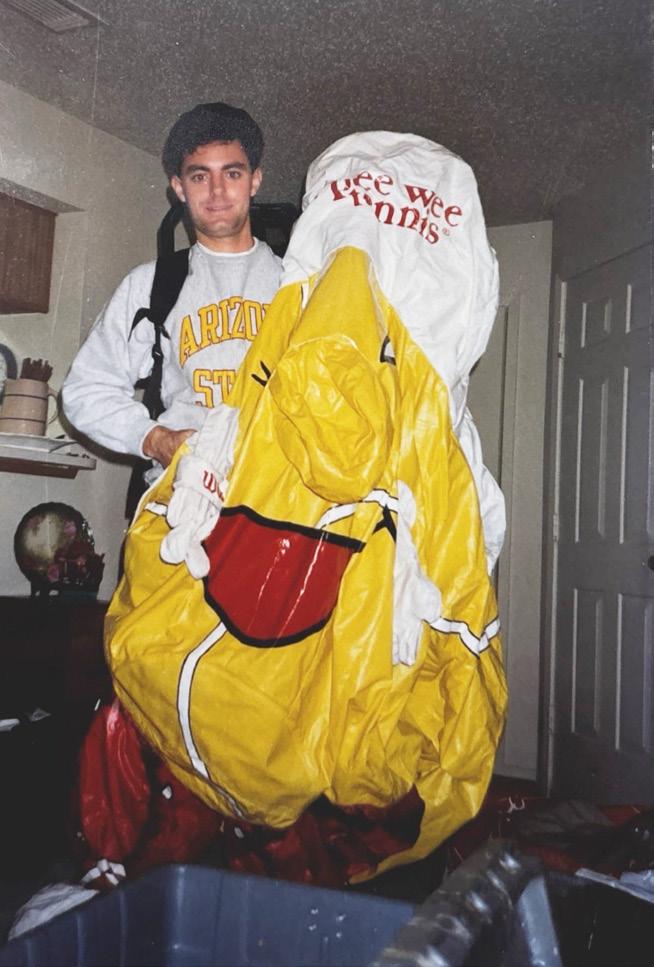
directly in the markets where the business happens every day. Centralization may work for some industries, but not for us. Our strength comes from being where our members are—on the courts, in clubs and at events—building relationships that last.
Ultimately, what sets our coach developers apart is their genuine passion for this profession. They care about the success of new members, the quality of education in our industry, and upholding the standards of RSPA professionals. Most importantly, they help others see racquet sports as a viable, long-term career. Who else in our industry truly cares about your career? Facilities, manufacturers, governing bodies? I hope so. But your association, for almost 100 years, is laser-focused on you, your improvement and your success. Racquet sports is not only our passion, but it is also our profession. Can anyone else make that claim?

Brian Dillman RSPA CEO

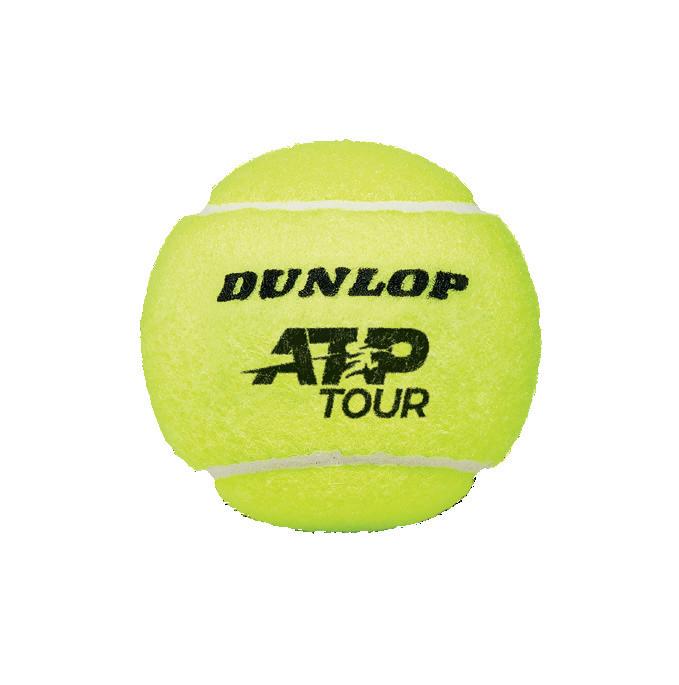
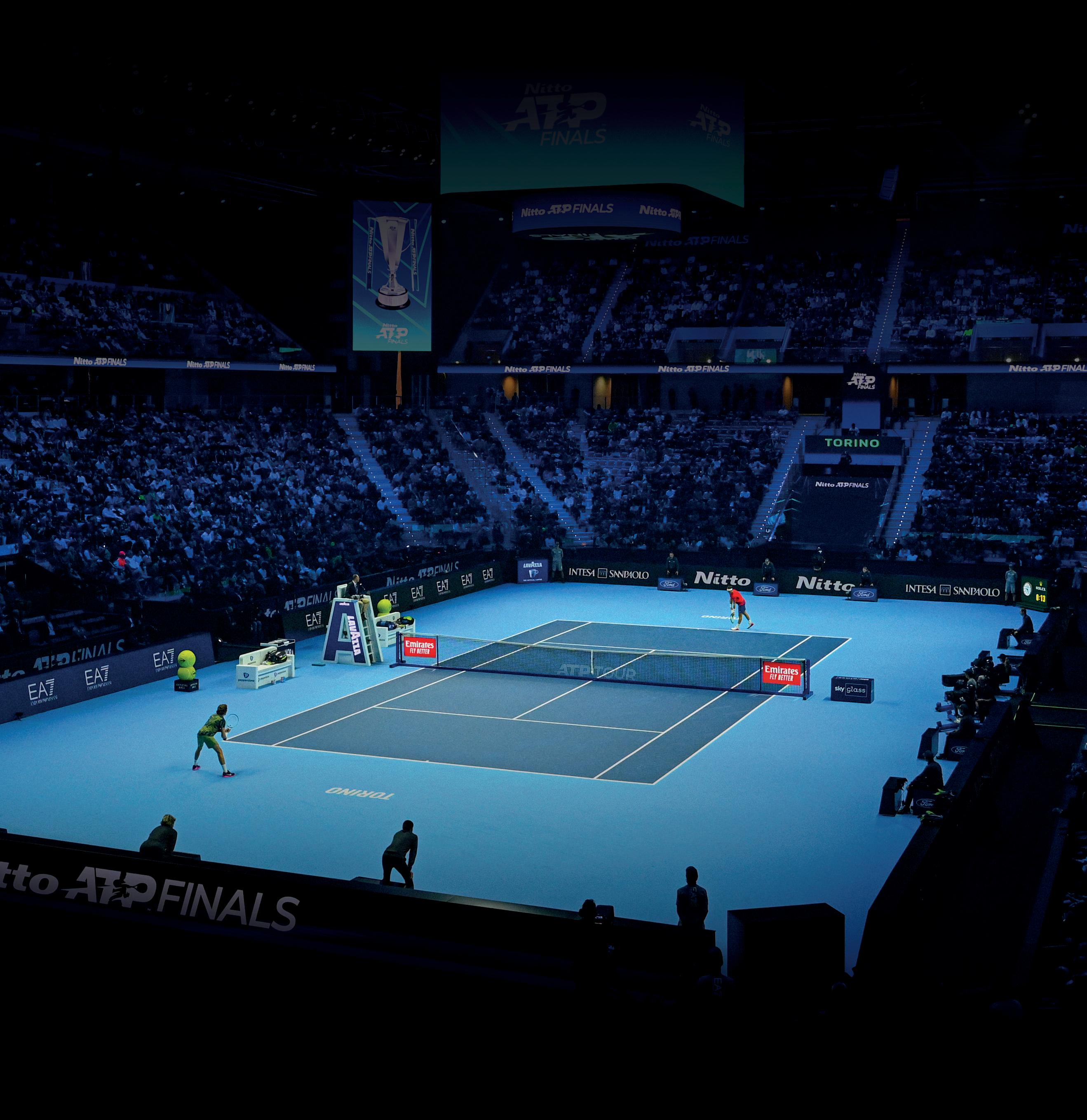
NOW MORE SUSTAINABLE PACKAGING
SAME GREAT PERFORMANCE
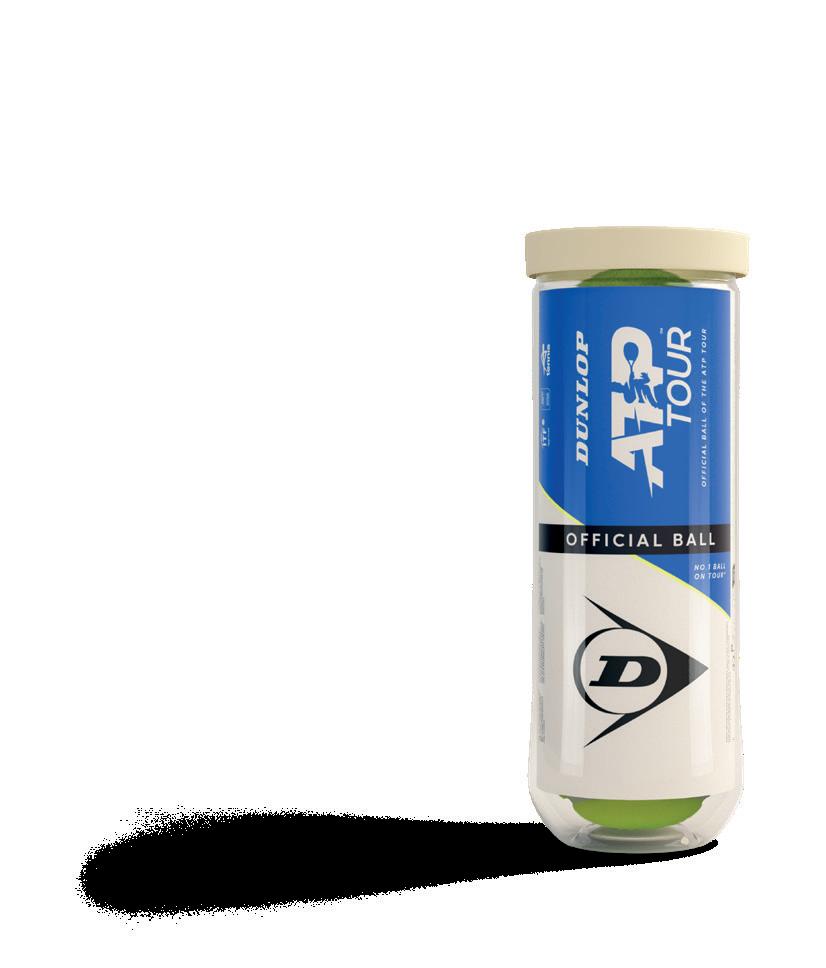
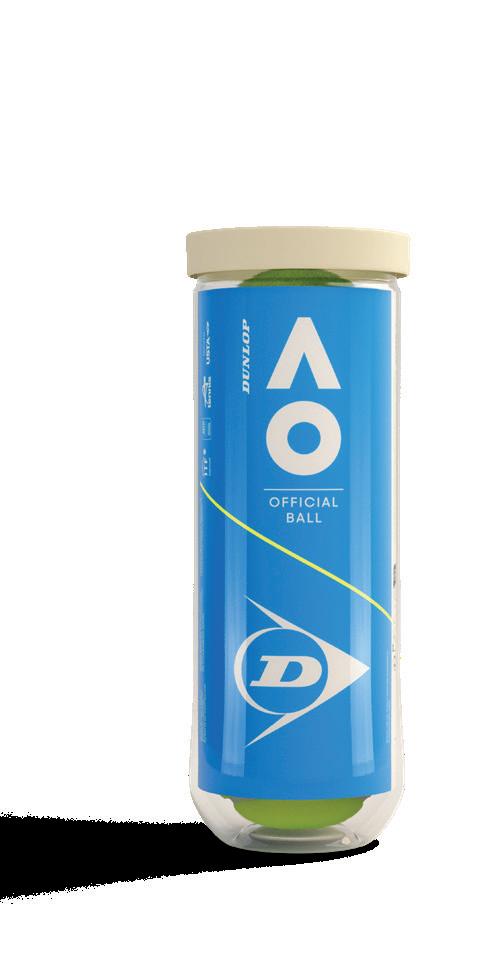
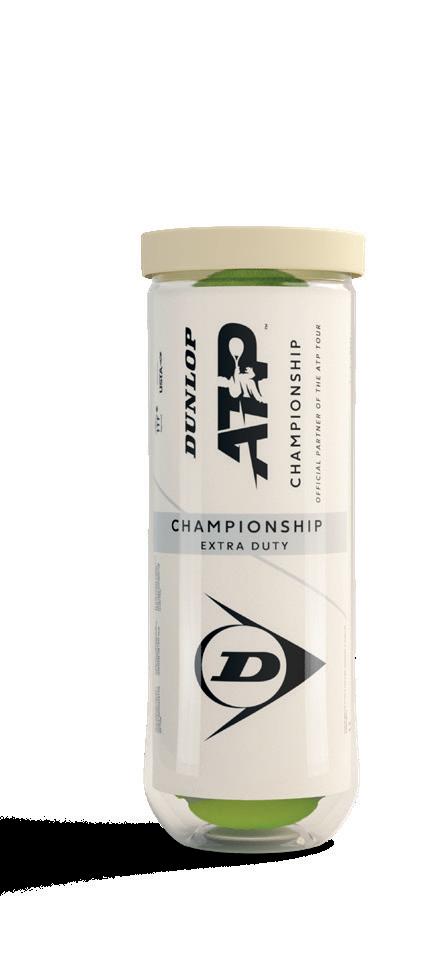
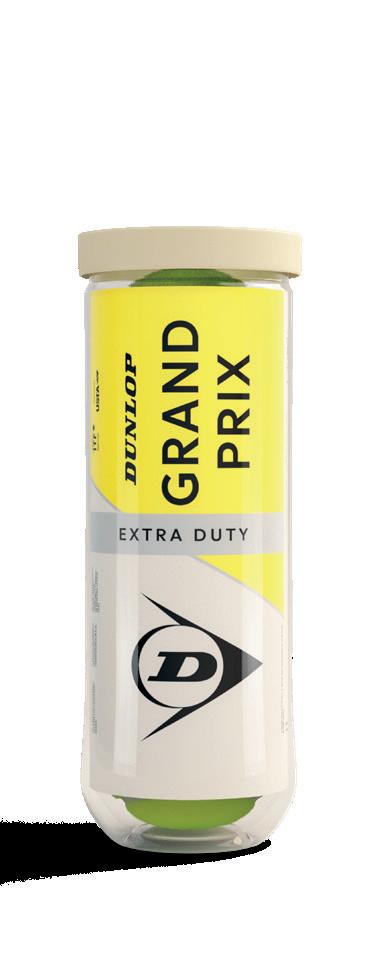
PAPER LID
Jenny Gray | RSPA Vice President
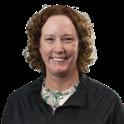
Coach developers play a key role in the RSPA’s success, and they play an important role in our association’s continued growth. For new professionals coming into the industry, this can be their first interaction with our association to help set their path to be a successful one through certification, education and motivation. In the fall of 2023, the RSPA made it a priority to identify highly qualified tennis and pickleball members to become coach developers in each of our 17 divisions. “Expanding our coach developer network and ensuring representation across all divisions was essential to building stronger regional communities and enhancing the accessibility and sustainability of our certification programs,” said Ramona Husaru, the RSPA’s chief development officer. “Having coach developers embedded in every division fosters a sense of local RSPA community and provides mentorship opportunities that are invaluable to new coaches as they advance in their careers.” The RSPA also offers regional coach developers for our other racquet sports including padel, platform and squash.
As most of us have seen, certifica-
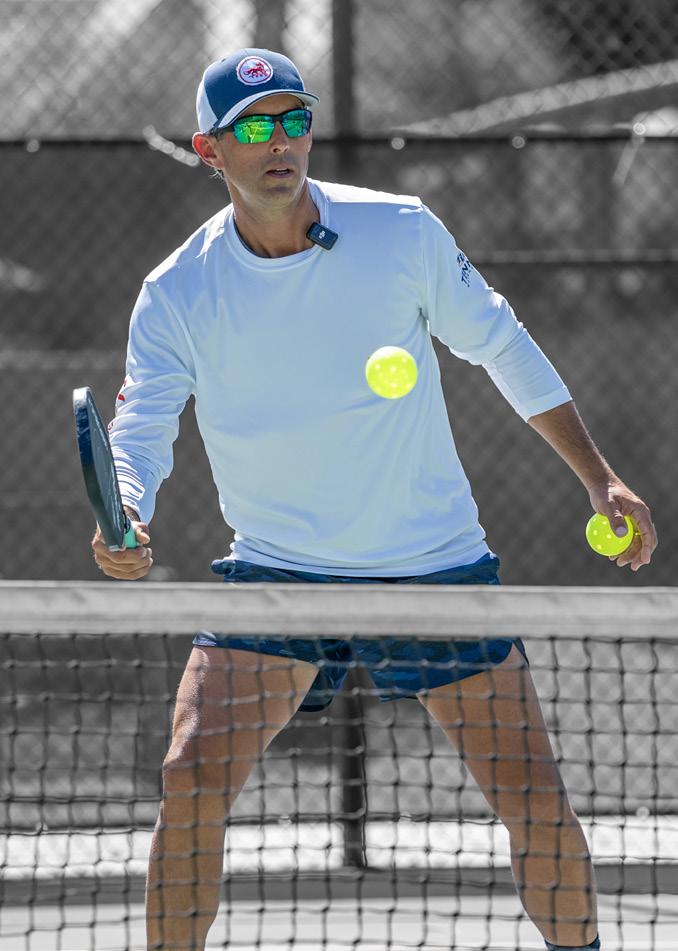

tion is a cornerstone of credibility in the racquet sports industry and is an important part to kicking off a successful and sustainable career.
“Certification sets you apart from others who may jump into teaching without truly understanding the game or the nuances of coaching,” said RSPA vice president and RSPA pickleball coach developer Kelly Marshall.
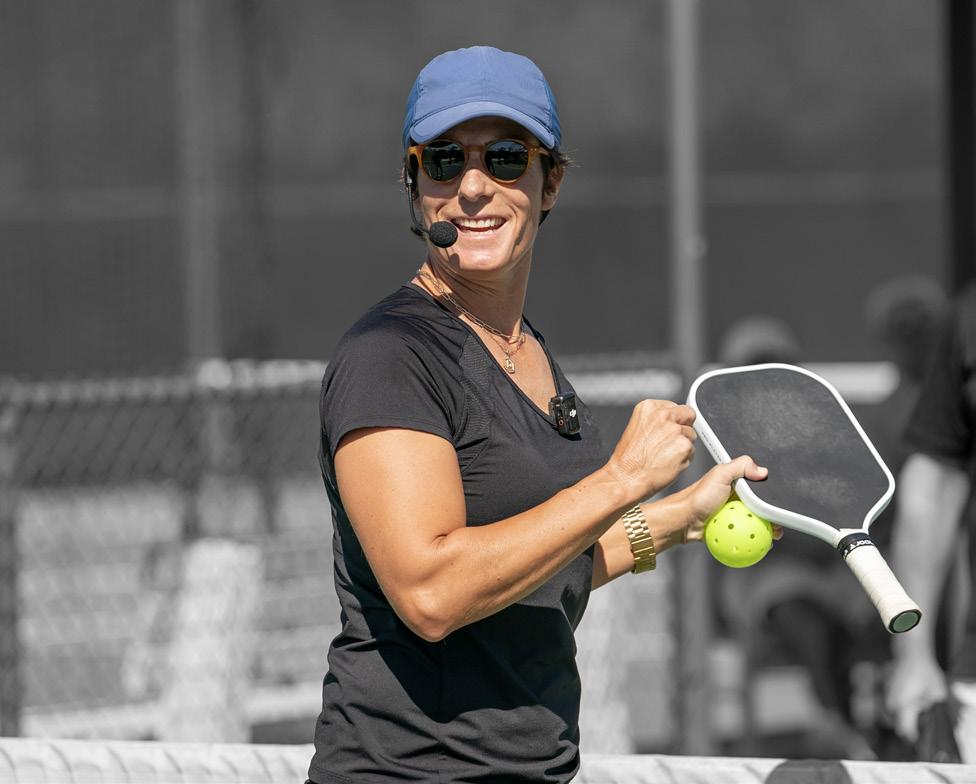
“It’s about adding credibility to your coaching credentials. Ongoing education — through conferences and online resources—helps keep you informed about the latest coaching techniques and game trends.” Kelly emphasized the importance of engagement, encouraging professionals to be active participants in the RSPA. “As with most things in life, the more you put in, the more you get out. I challenge professionals to ask themselves: are you an active member, or do you just belong?”
Coach developers are ambassadors for each of our racquet sports and have been involved in nearly every aspect of the industry from grassroots levels to club management.
Pam Dodman, RSPA New England executive director and tennis coach developer, has been a member since 1990 and brings decades of expertise to her role. “I enjoy helping people,” she said. “As a former tester for the USPTA, I’ve always loved supporting individuals in achieving their certification goals while upholding high standards. As a coach developer, I aim to create a learning environment built on mutual respect and community where everyone can learn from one another.” Pam underscores the broader benefits of certification, saying, “It provides membership into an orga-
nization that offers networking opportunities, community building, and continuous learning.” Professional development through continued education also plays a key factor in developing our professionals as well as sustaining successful careers. Former RSPA president and tennis coach developer Feisal Hassan encourages both applicants and certified members to stay at the forefront of the industry. “Education is key,” he said. “Our industry is evolving into a racquet sports industry and professionals must seek knowledge in other sports like pickleball, padel, platform tennis and squash. Consumers are looking for well-rounded offerings and clubs and coaches must align with these demands.”
Coach developers are the backbone of the RSPA’s mission to uphold excellence in coaching. Their commitment to fostering growth, both on and off the court, ensures that the next generation of professionals is not only skilled but also well-equipped to lead with integrity and passion. Through their efforts, RSPA continues to elevate the standards of the racquet sports industry while building strong, supportive communities across its divisions.
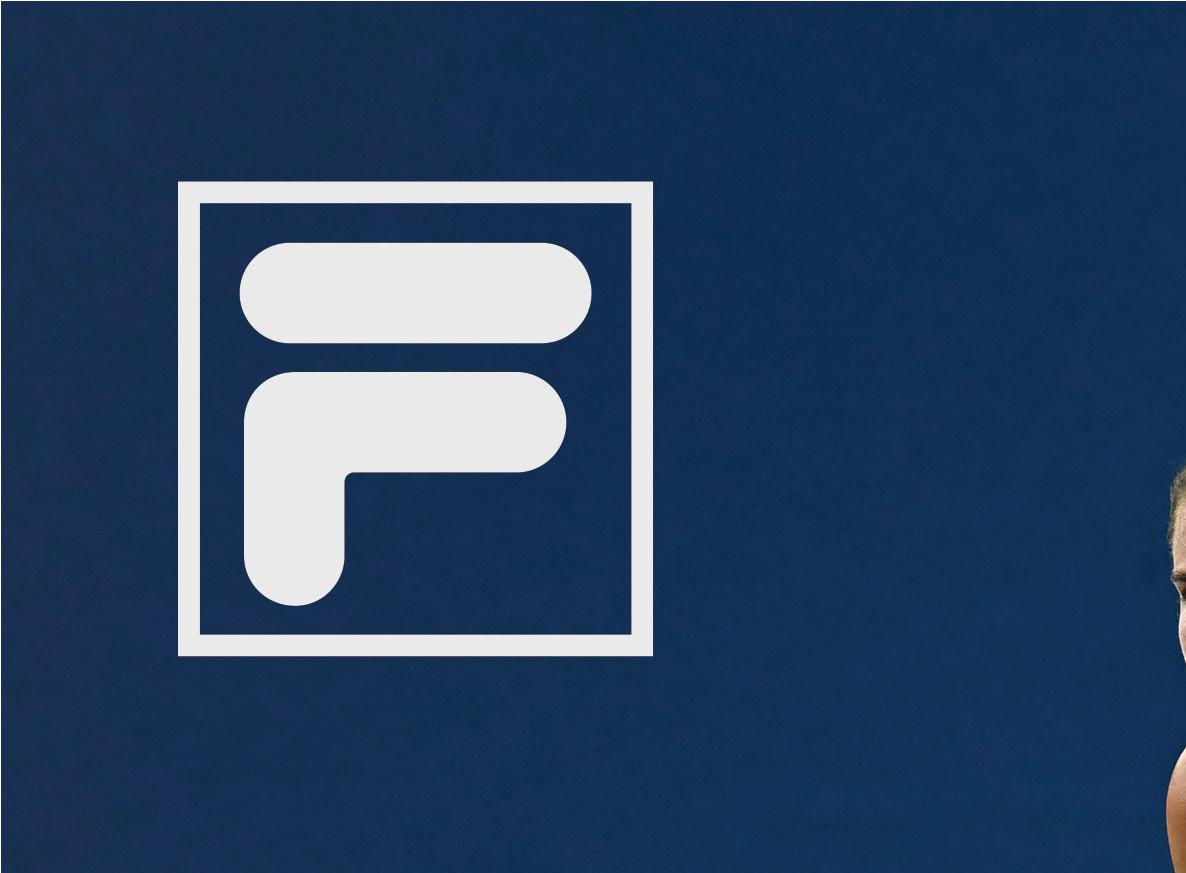
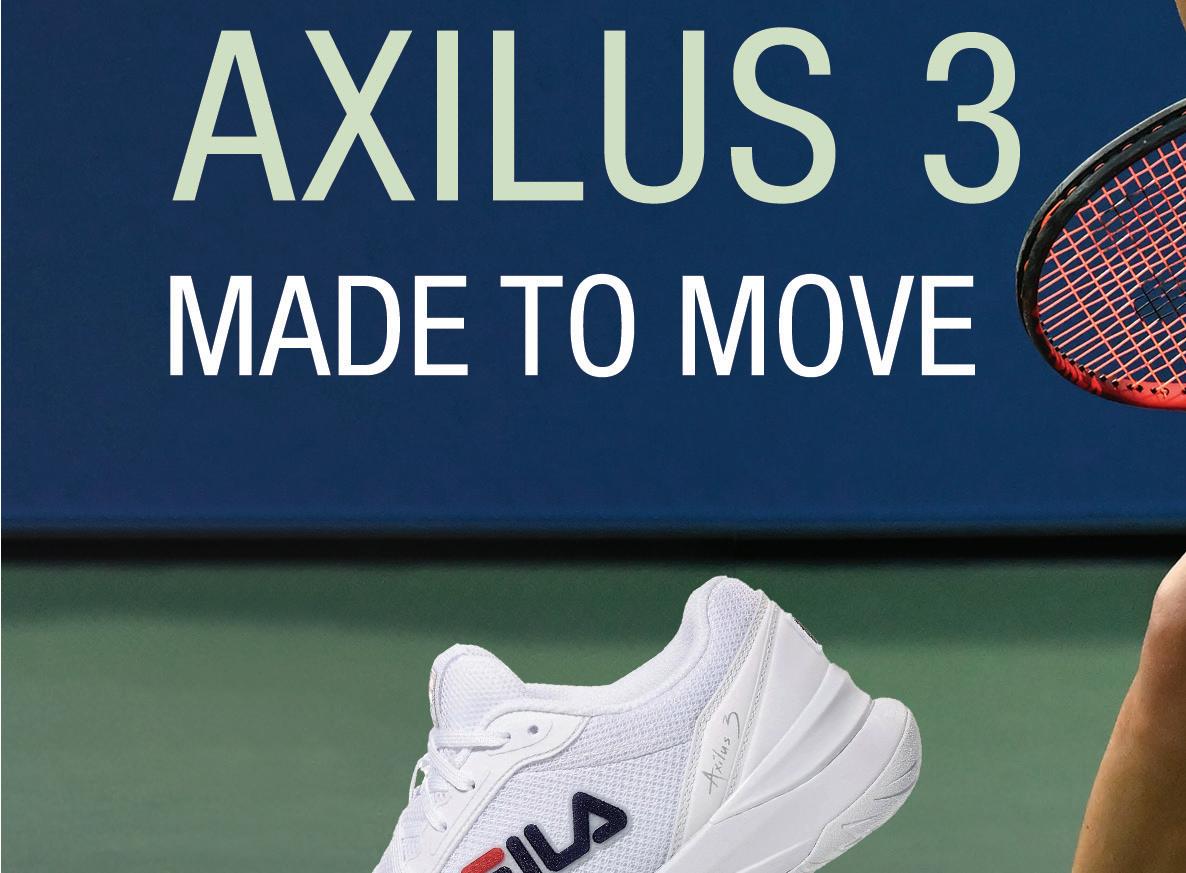
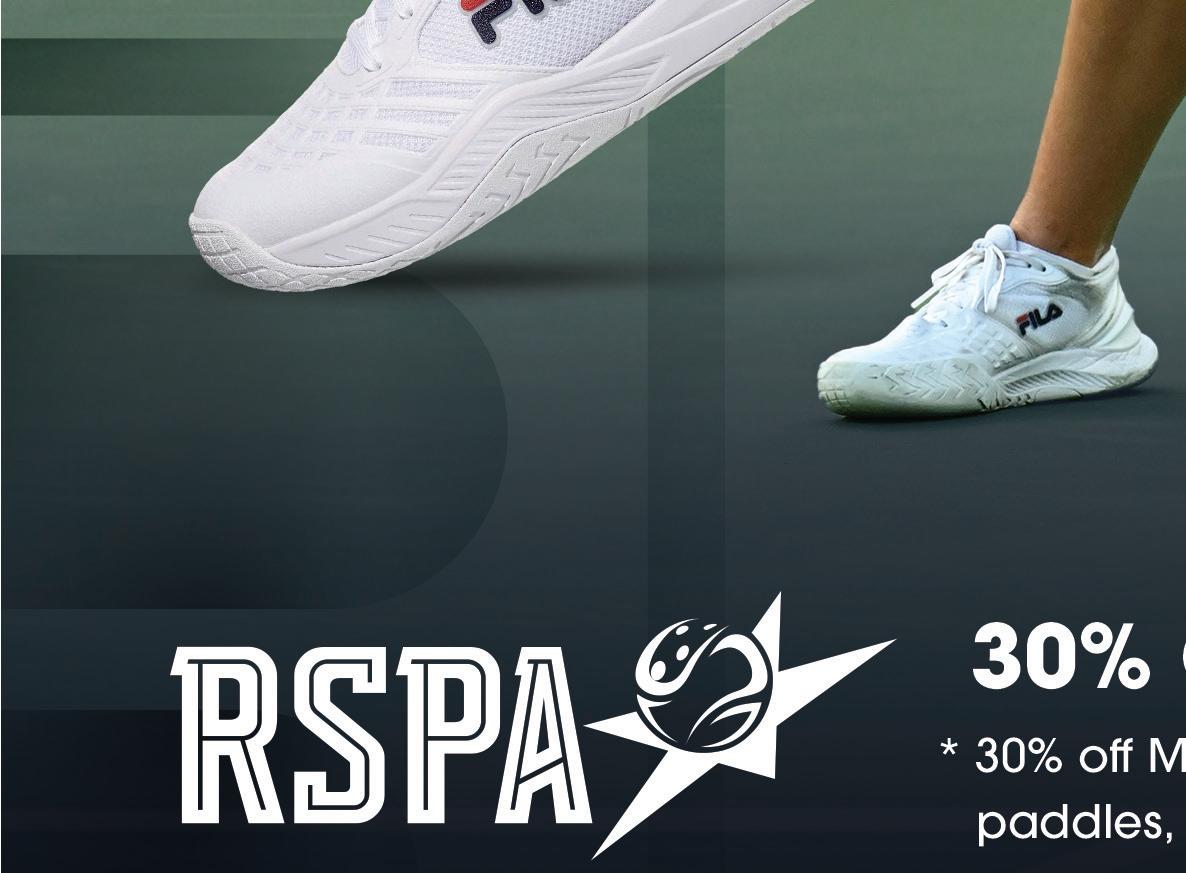
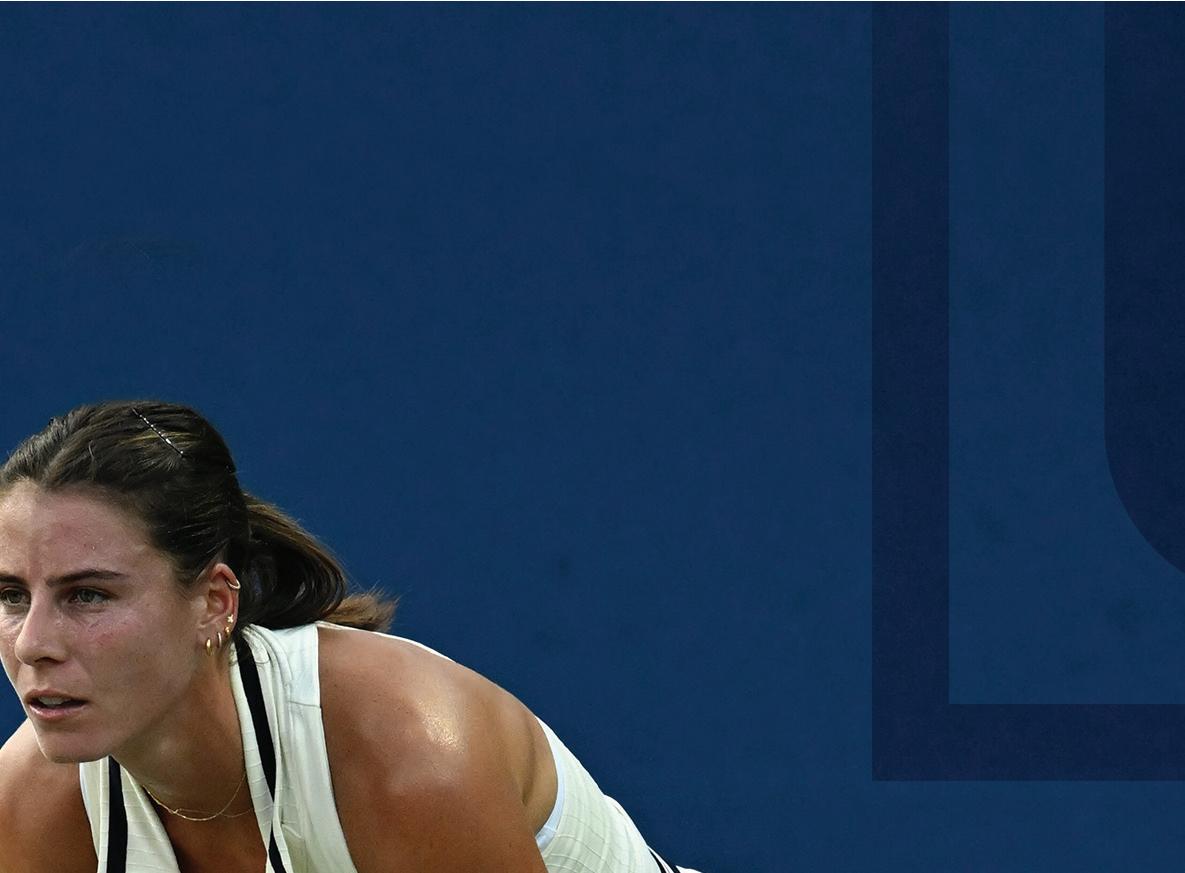
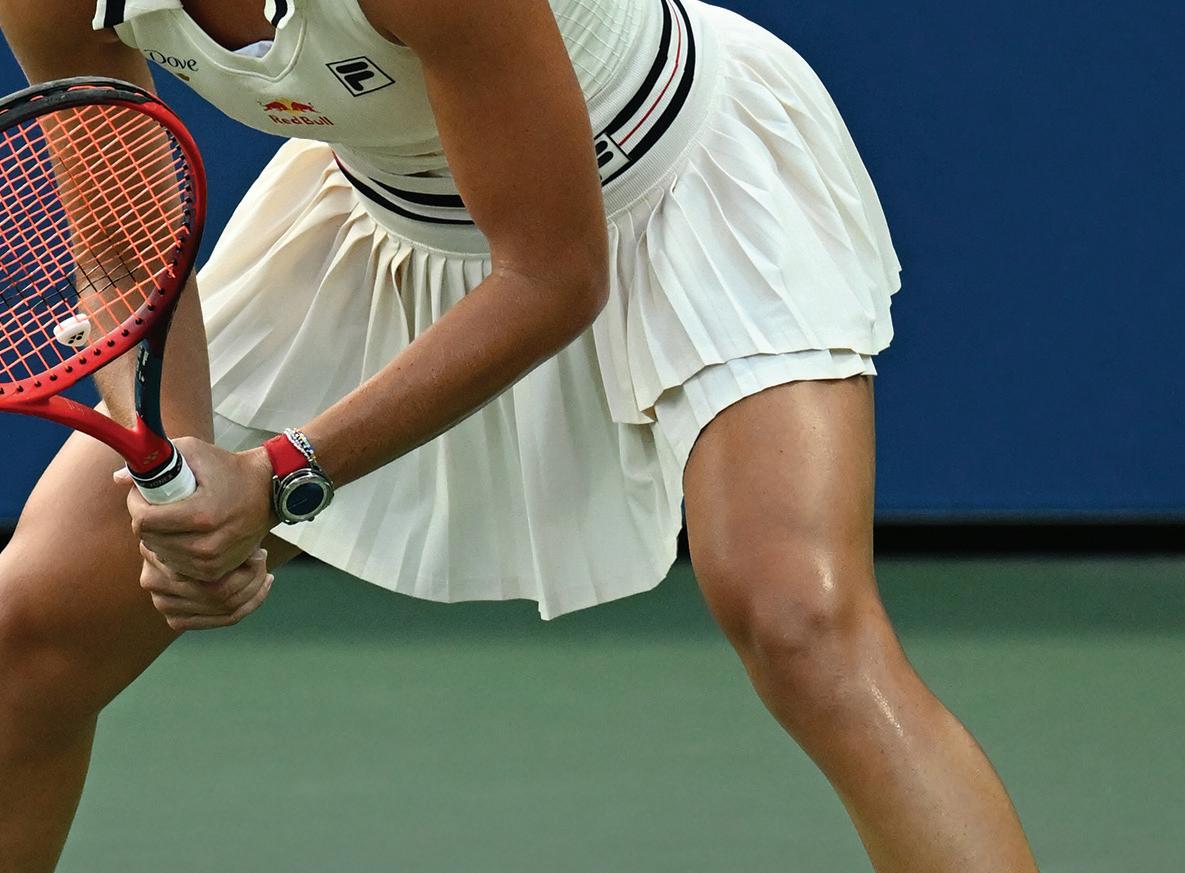



Coach developers are a crucial part of the RSPA’s mission to champion the passion for racquet sports by developing professionals who lead with integrity, innovate in coaching and inspire a diverse and inclusive racquet sports community across our nation’s 17 divisions and worldwide. Their commitment to upholding RSPA’s high coaching standards and their dedication to supporting coaches at all stages of their careers is invaluable to our organization. Their mentorship and dedication help shape the future of racquet sports and inspire the next generation of coaches and players.
RSPA coach developers are highly accomplished professionals with years of experience in the racquet sports industry. These leaders have extensive knowledge

across multiple racquet sports, including tennis, pickleball, padel, platform tennis and squash. They are mentors, leaders and passionate advocates for elevating coaching standards, inspiring growth and fostering a culture of excellence within the coaching community. Some of their accolades include RSPA Master Professionals, director of racquet sports, head tennis coaches, former professional players, industry award winners, business owners, charitable leaders and even a Guinness World Records holder.
Coach developers are one of the first points of contact that members have with the RSPA, serving as the face and voice of our organization. As RSPA ambassadors, they embody our values and mission, setting the tone for all interactions and helping to create a welcoming, support-
Eastern, Jason Joseph Florida, Ramona Husaru
Tennis Instructor (Level 1 virtual)
Feisal Hassan
Ellen Considine Miller
Anne Davis
Ben Hestley
Amy Nestle
Marcos del Pilar
Florida, Kyle LaCroix
Florida, Dave Neuhart
Florida, Ben Rakusin
Mid-Atlantic, Feisal Hassan
Intermountain, Marshall Carpenter
Middle States, Mark Centrella
Midwest, Amy Nestle
Midwest, Mike Lange
Missouri Valley, Bunny Bruning
New England, Pam Dodman
Northern, Bruce Gullikson
San Diego, Conan Lorenzo
Southern, Allan Jensen
Southern California, Simon Paek
Southern California, Dave Hagler
Southwest, Greg Prudhomme
Texas, Sarah Flood
Texas, Ellen Considine Miller
Tennis Professional (Level 2)
Eastern, Jason Joseph
Eastern, Somadi Druker Florida, Ramona Husaru Florida, Kyle LaCroix Florida, Dave Neuhart
Intermountain, Marshall Carpenter
Mid-Atlantic, Feisal Hassan
Mid-Atlantic, Jose Rincon
Middle States, Mark Centrella
Midwest, Amy Nestle
Midwest, Mike Lange
Missouri Valley, Bunny Bruning
New England, Pam Dodman
Northern, Bruce Gullikson
Northern, Christin Schumann
Northern California, Rosie Bareis
Pacific Northwest, Matt Iwersen
San Diego, Conan Lorenzo
Southern, Allan Jensen
Southern, Dan Beedle
Southern California, Simon Paek
Southern California, Dave Hagler
Southwest, Greg Prudhomme
Texas, Sarah Flood
Kristin Schneiderman, RSPA Education & Certification Senior Manager

ive environment for coaches at every stage of their careers. Whether a coach is just starting their certification process, adding an additional certification to their portfolio, progressing from Instructor (Level 1) to Professional (Level 2), or working toward achieving Elite (Level 3) status, an RSPA coach developer is there to offer valuable guidance and mentorship throughout the process.
Coach developers play a pivotal role in helping new coaches develop key teaching, coaching and leadership skills. They are dedicated to creating a positive environment through effective communication, organization and mentorship, empowering members to thrive in their roles. This empowers RSPA coaches to establish a strong foundation for success and confidently guide athletes to reach their full potential. Beyond certification, coach developers advocate for a growth mindset, emphasizing the importance of continuous professional
Eastern, Geo LoConte
Florida, Tim Irwin
Florida, Dominique Lemperle
Florida, Matt Bacon
Florida, Dave Neuhart
Florida, Greg Moussette
Hawaii, Cathleen Nicolo
Intermountain, Mark Chomko
Mid Atlantic, Jason Grigg
Middle States, Kent Johnson
Midwest, Scott Ficks
Midwest, Brian Shoman
Missouri Valley, Bunny Bruning
New England, Angelo Rossetti
Northern, Steve Paulsen
Northern California, Anne Zarraonandia
Northern California, Carrie Zarraonandia
Pacific Northwest, David Chun
San Diego, Jerry Jayapal
Southern, Darryl Lewis
Southern, Tim Smith
Southern, Geo Browne
Southern, Bill Riddle
Southern California, Simon Paek
Southwest, Ryan Johnson Texas, Kelly Marshall
Rich Wade Graeme Williams
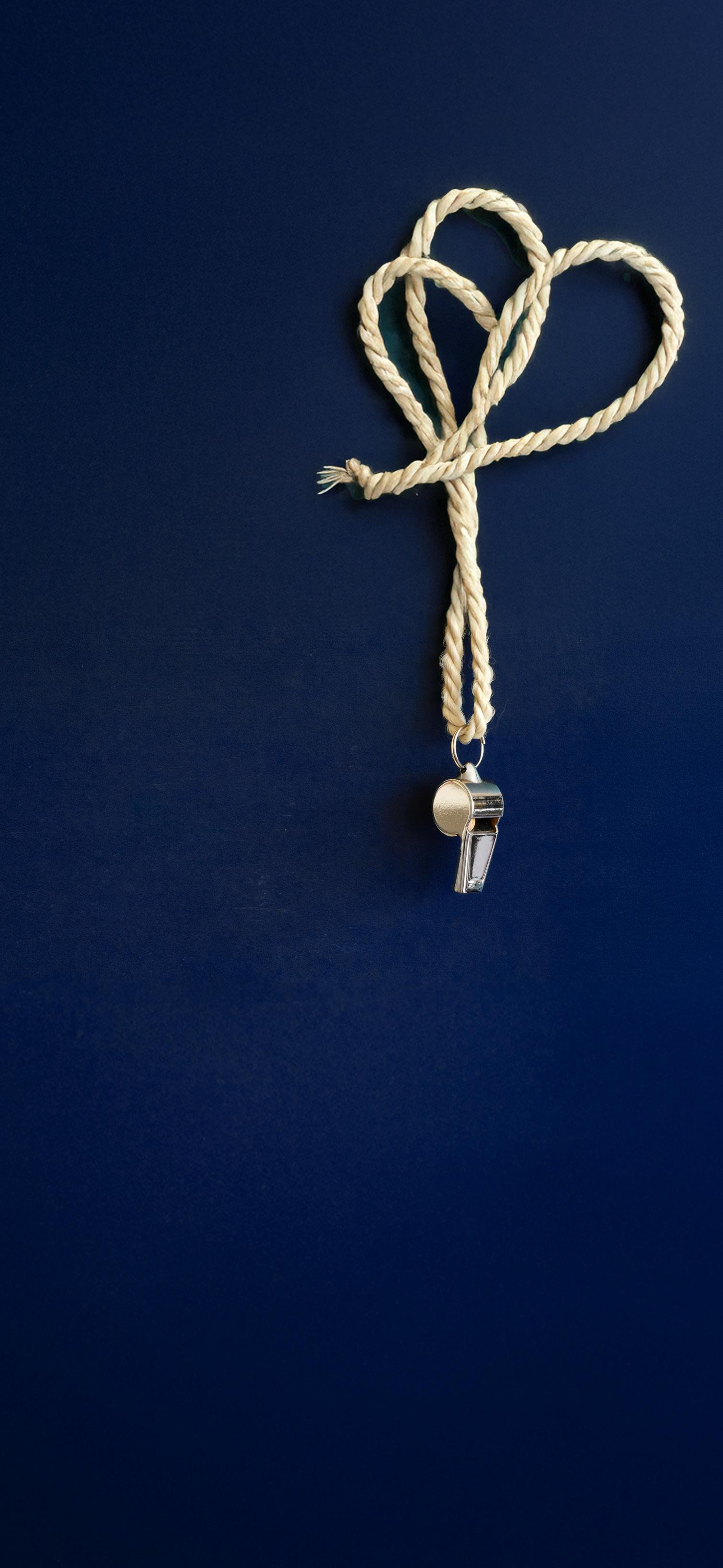
development. Our coach developers speak at and encourage members to attend RSPA divisional and national conferences. They challenge members to stay on the cutting edge of the racquet sports industry through continued education.
Coach developers play an integral part in our organization’s success and growth. They are our boots on the ground. They play a crucial role in ensuring all members can access high-quality certification workshops and valuable networking opportunities in their local communities. For many members, coach developers are the first people they meet from our organization, and we are proud to have them as ambassadors.
Each of our 17 divisions is supported by coach developers who stay deeply connected to the needs of their local communities. This divisional network allows our organization to understand the specific needs and unique challenges of coaches no matter where they live and offer local networking opportunities at every workshop.
RSPA’s coach developers are driven by their passion for helping others succeed in the sports they know and love. Many have spent decades coaching and working at all levels of the racquet sports industry and want to give back to the community that provided them with opportunities. Their purpose is beyond assisting coaches in earning certifications; it is to foster a community of coaches who strive for continuous improvement and growth.
Coach developers believe that coaching is more than technical expertise; it’s about developing leadership qualities that inspire and motivate athletes to reach their full potential. They exemplify that the more coaches invest in their professional development, the more they can
give back to their players, clubs and communities on and off the court.
On a personal note, I am honored to work alongside our coach developers (CDs). They are invaluable to our organization and one of the many reasons I am proud to be a part of the RSPA. I am always impressed by their expertise and professionalism, especially when I see their email signatures listing their professional accolades and titles. However, it is not just their professional achievements that stand out. I am consistently inspired by their commitment to charitable work and their unwavering dedication to going above and beyond to support our members.
We here at RSPA are thankful for all that CDs do for our organization and their communities. Thank you, RSPA CDs!
Each month, the RSPA will use this column to select someone who helps our association run to give better insight into what the many faces of our association do to grow racquet sports. We’re kicking it off with an article from Michael Loleng, RSPA Asian American Task Force Chair.
In May 2022, after being spotlighted, I agreed to take over as the RSPA Asian American Task Force Chair, following Chris Tran’s request. In 2023, I spoke at the RSPA NorCal spring and fall conferences about the RSPA DE&I Committee and its seven task forces, including the Asian American Task Force, which had members such as Sontthana Thongsithavong, Suk Ong, Stephanie Luk and Rick and Cara Beltran. I spotlighted several members, including Sonthana, Rick and Cara Beltran, Kyle Ju, and Simon Paek.
Since 2023, I’ve served on the USTA NorCal DE&I Committee, organized tennis and pickleball events in Watsonville, Calif., in collaboration with the Asian American Santa Cruz group and USTA NorCal and was featured on the At the Net Podcast. I also attended the 2023 World Conference in Orlando, where I met task force members in person.
In 2024, the task force grew to include new members Craig Wells and Justin Bellasario, who were spotlighted nationally. I was also named the RSPA NorCal vice president, awarded the 2023 NorCal Star Award and competed in the Innovation Challenge at the World Racquets Conference in Palm Springs. Additionally, Sonthana received the 2023 Professional of the Year award, and Craig Wells was named High School Coach of the Year.
For 2025, I plan to continue as the Task Force Chair, RSPA NorCal vice president, and USTA NorCal DE&I Committee member. I’m organizing an Asian American/AAPI event with USTA NorCal and explor ing the possibility of having an RSPA representative at Vania King’s AAPITA event at the US Open. The 2025 task force will include Sonthana, Suk, Justin, and new members Cherryl Silva, Luiza Biktyakova and Nick Loudermilk.
I’m grateful for all the pas sionate task force members who are making a positive impact in their communities and divisions.
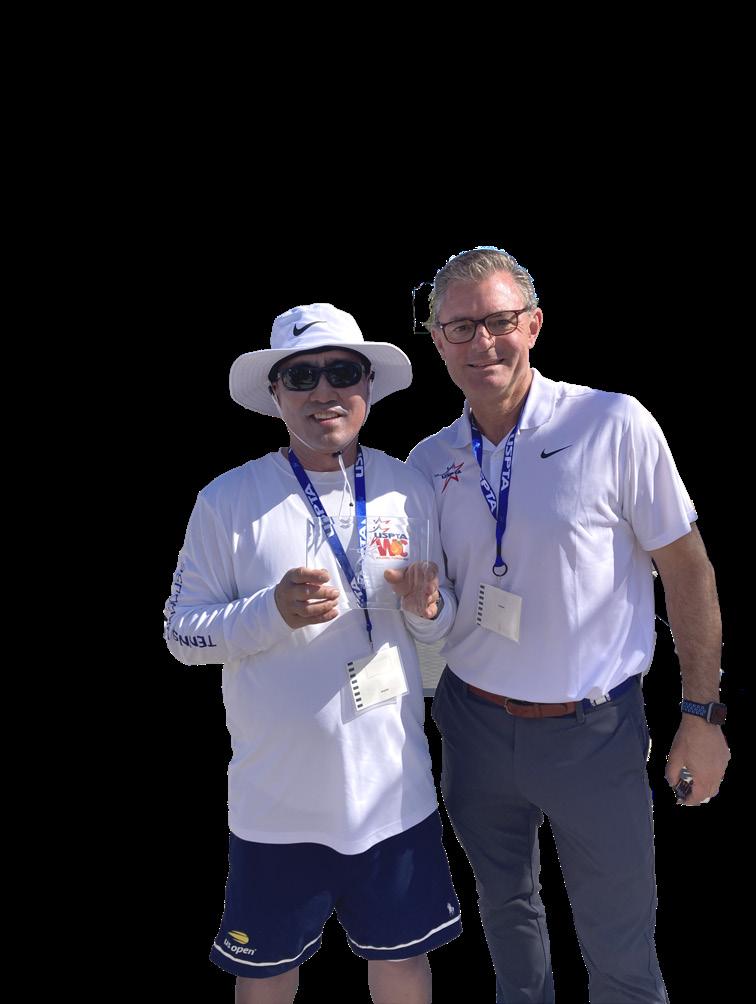

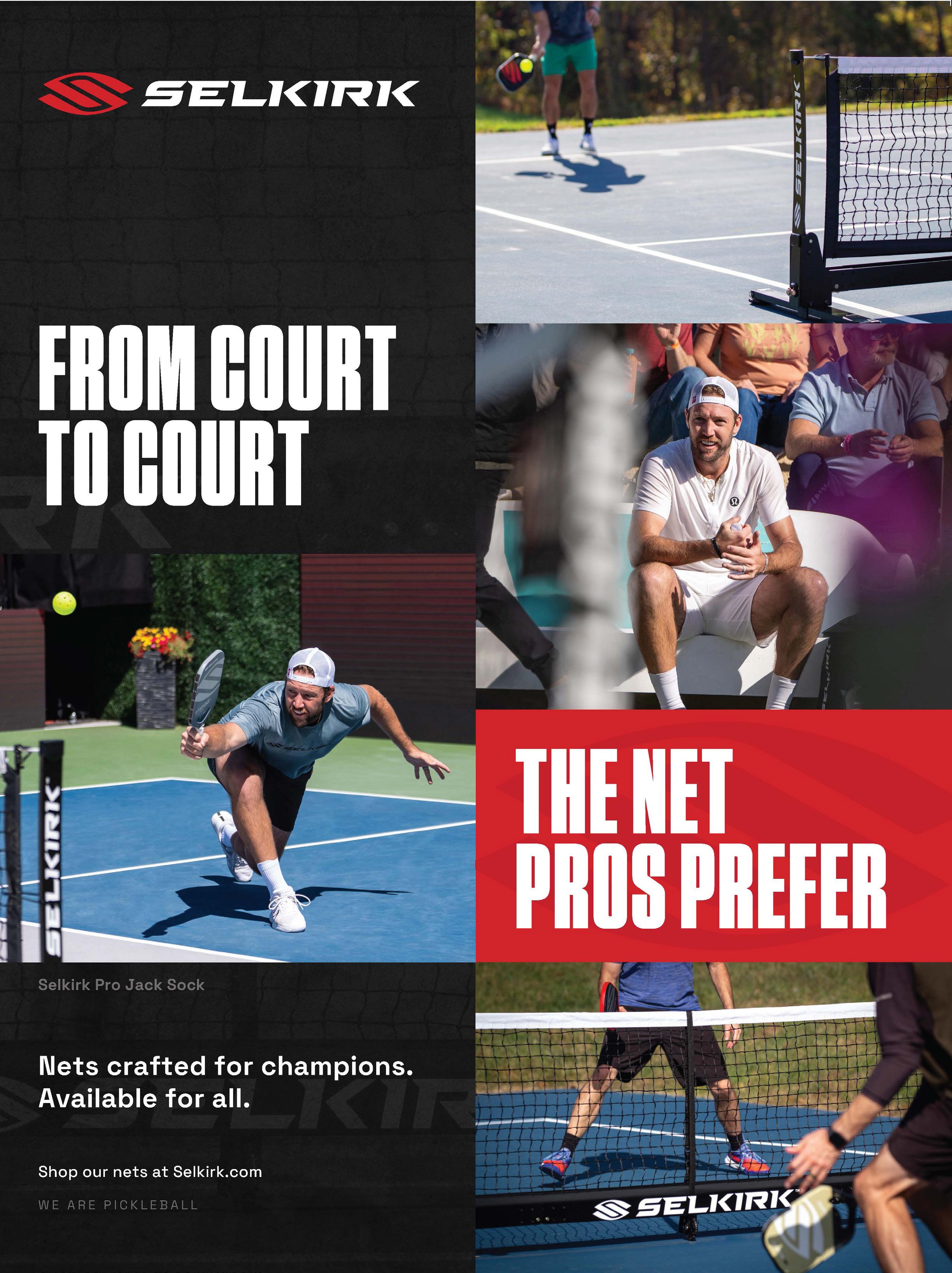
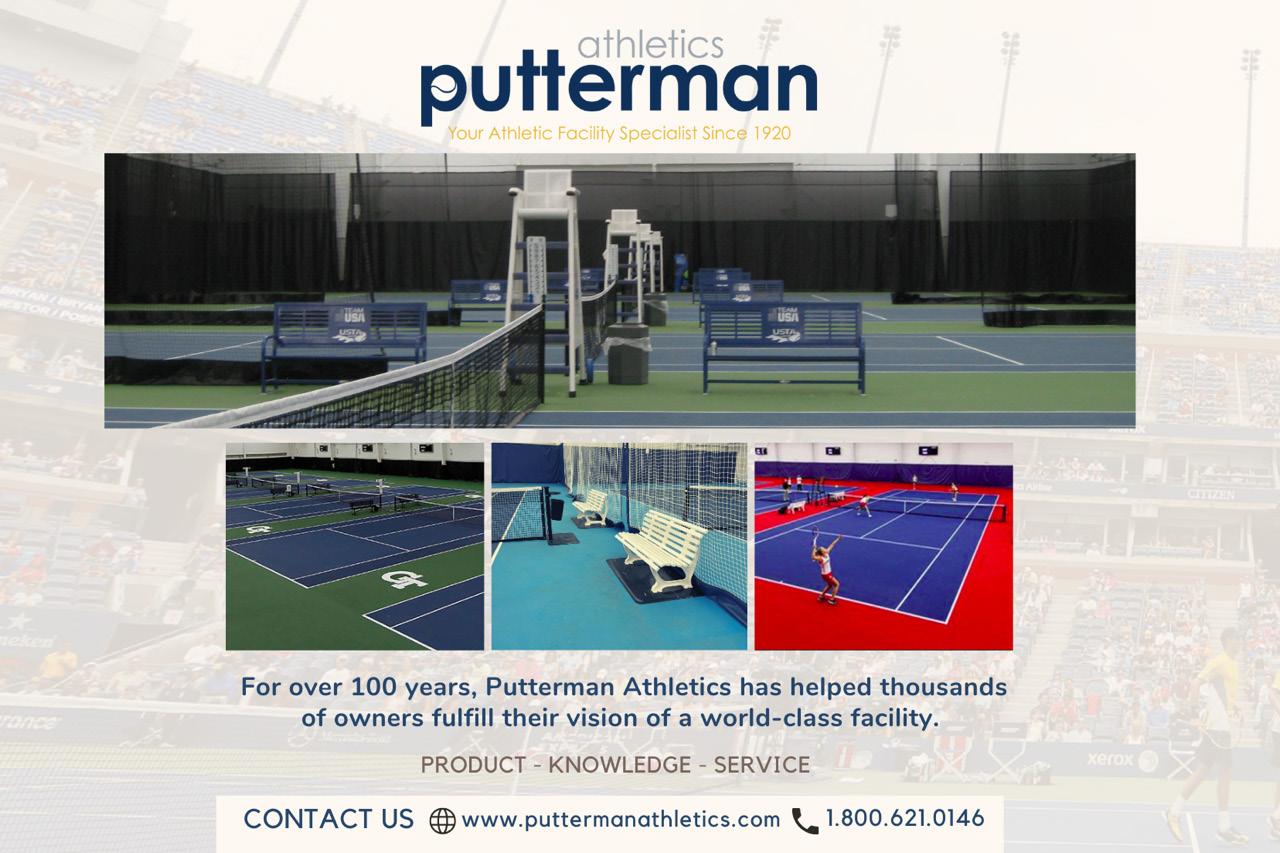

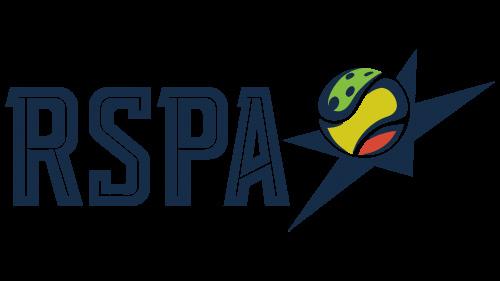




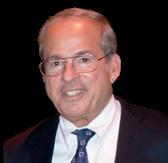
PHOTO
Steve Flink, International Tennis Hall of Fame
CREDIT: Fred Mullane, CameraworkUSA
Before she opened the 2025 Grand Slam season stupendously by celebrating the fortnight of her life with a groundbreaking and career altering triumph in Melbourne at the Australian Open, Madison Keys had nothing whatsoever to be ashamed about. She had already gone to the U.S. Open final in 2017 and the penultimate round of five other major tournaments, starting with the 2015 Australian Open. She had won nine tournaments on the WTA Tour over the years, including a morale boosting triumph in Adelaide a few days before her triumphant Australian Open campaign commenced.
In fact, Keys had worked assiduously at her craft, carried herself honorably wherever she competed and achieved on a lofty level. But sometimes she carried her humility too far, selling herself short, leaving her biggest boosters saddened because they believed in her more than she believed in herself.
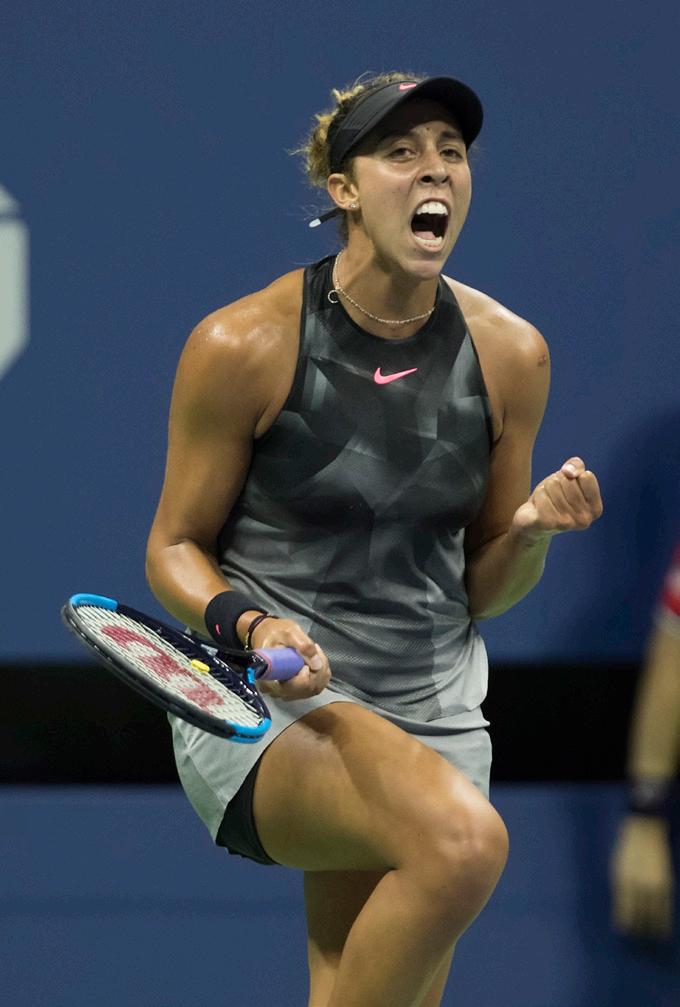
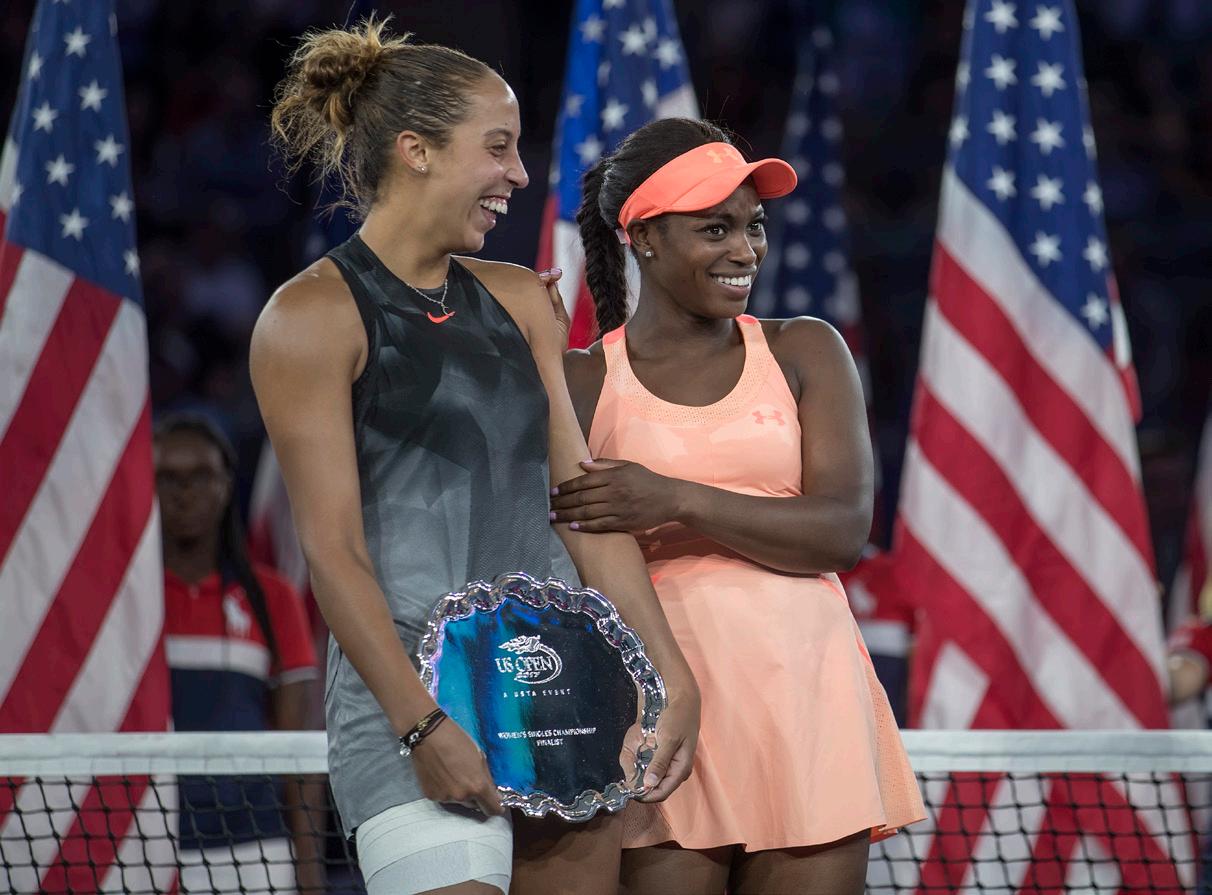
That’s why the tennis world rejoiced unabashedly when Keys took home the Australian Open title so deservedly. By virtue of her popular triumph, Keys established herself as only the fifth American woman since 2000 to win the Australian Open, joining Lindsay Davenport, Jennifer Capriati, Serena Williams and Sofia Kenin in that elite club.
At 29— less than a month away from her 30th birthday—Keys became the second oldest woman after (Li Na in 2014) since the start of Open Tennis 57 years ago to be victorious at this Grand Slam tournament. Moreover, only two players have appeared in more majors before securing a first career Grand Slam singles title. Italy’s Flavia Pennetta claimed the U.S. Open title in 2015 in her 49th Grand Slam tournament. The Frenchwoman Marion Bartoli won Wimbledon in 2013 when competing in her 47th major. Keys made her breakthrough in her 46th Grand Slam tournament.
Making the Keys triumph all the more remarkable was the arduous draw she navigated and her habit of saving her best tennis for the biggest moments. Seeded 19th in Melbourne, she endured one tough match after another but was never found wanting. In the first round against countrywoman Ann Li, Keys
prevailed 6-4, 7-5. Facing the Romanian qualifier Elena-Gabriela Ruse in the second round, Keys was stretched to her limits but succeeded 7-6 (7-1), 2-6, 7-5. Against the tenacious No. 10 seed Danielle Collins in the third round, Keys came through 6-4, 6-4, producing twice as many winners as her opponent (24 to 12). Confronting No. 6 seed Elena Rybakina in the round of 16, Keys stopped the 2023 finalist 6-3, 1-6, 6-3. Now in the quarterfinals, she survived another hard-fought encounter, ousting No. 28 seed Elina Svitolina 3-6, 6-3, 6-4, releasing no fewer than 49 winners—29 more than her opponent.
But her best was yet to come. In the semifinals against No. 2 seed Iga Swiatek, Keys was down match point with the Polish competitor serving for the match at 6-5 in the third. But Keys made an excellent return of serve down the middle to rush Swiatek into a backhand error. In the ensuing tie-break, Keys was under continuous duress, trailing 3-5, 4-6, and 5-7. And then, serving at 7-8 and two points from elimination, she REFLECTIONS
displayed immense poise under pressure, unleashing an ace and a service winner and then profiting when an understandably apprehensive Swiatek made an error. Keys was a 5-7, 6-1, 7-6 (10-8) victor.
That triumph sent Keys into the final against top seeded Arnya Sabalenka, who was striving for a third straight Australian Open crown. Serving at 5-5, 15-30 in the final set, Keys steadfastly held on and then broke in the following game, ending the match with an outright winner off the forehand. Keys secured her first major in style, winning 6-3, 2-6, 7-5 for her fifth three set victory in a phenomenal fortnight.
In the past, Keys frequently doubted herself when the stakes were highest. In fairness, she was clearly hampered by an injury when she lost her only previous major final at the 2017 U.S. Open final 6-3, 6-0 to Sloane Stephens. On the other hand, there were some other big defeats when Keys was perhaps a prisoner of her own insecurities, most memorably in a 2023 U.S. Open semifinal defeat against Sabalenka when she lost under the lights in Arthur Ashe Stadium 0–6, 7-6 (7-1), 7-6 (10-5) despite leading 5-3 in the second set and 4-2 in the third.
The Madison Keys who fought so valiantly through all of those tense contests in Melbourne this year was a different breed of competitor. As Keys would explain after winning the tournament, she finally gives herself permission that if she never did collect a major crown it was not unacceptable. The view here is
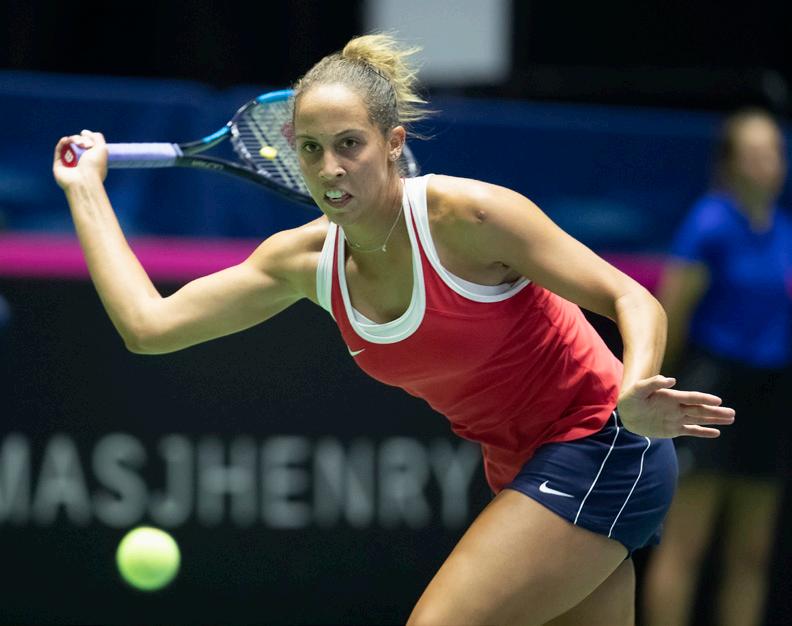
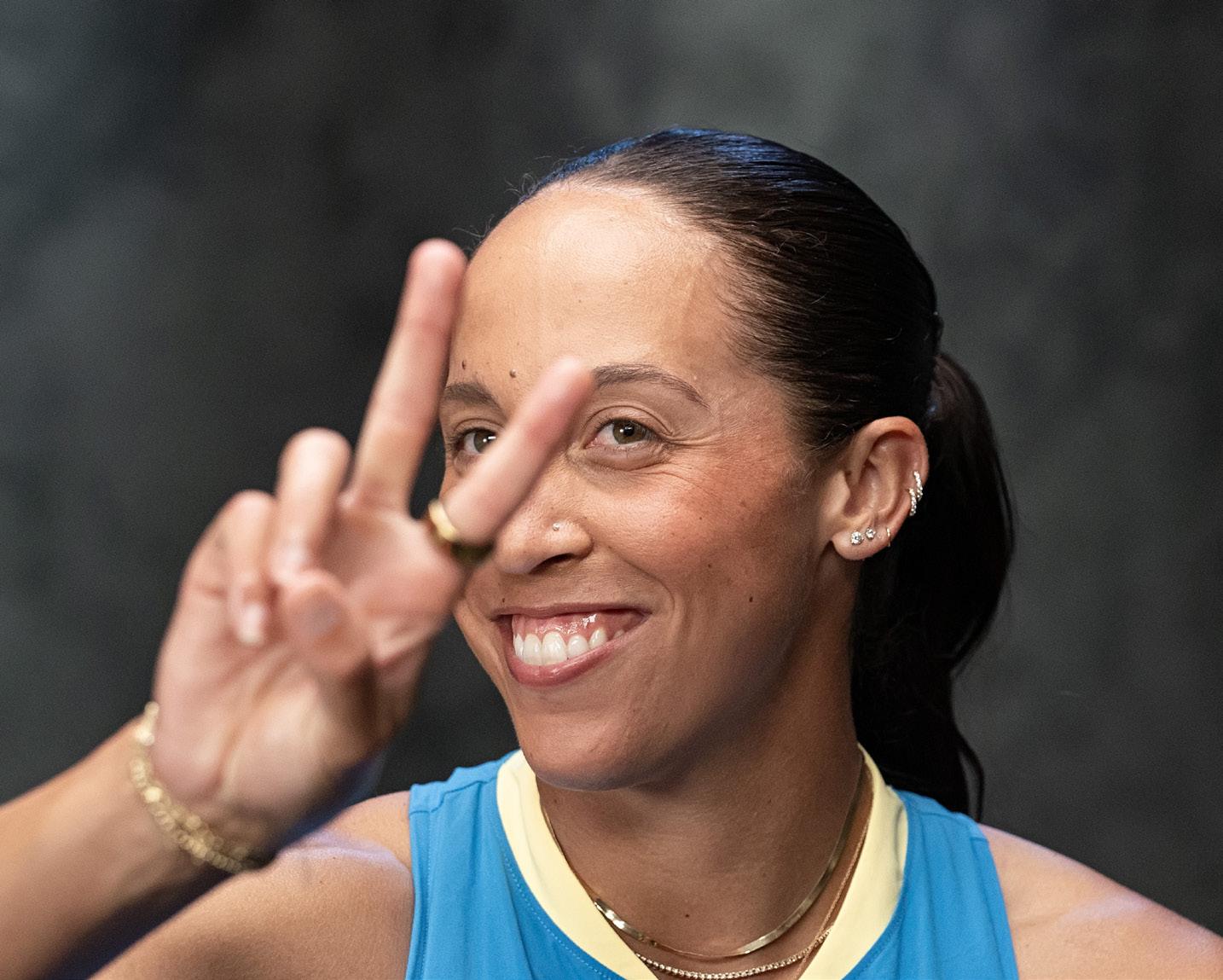
that Keys removed allowed herself up to play the way she had always wanted at crunch time by altering her outlook. Keys climbed back to her high point at No. 7 in the WTA Rankings after taking the Australian Open title, and then went one better a week later, moving up to No. 6. She found herself surrounded by countrywomen who reside in the same territory. As this piece goes to print, Coco Gauff is No. 3, Jessica Pegula stands at No. 5, and Emma Navarro is No. 9. There were also four American women among the top ten last November, but the current cast will continue to flourish, especially Gauff and Keys. Pegula, too, will be her usual estimable self.
As for Keys, now at last she has almost nothing to lose. For so long, she wanted to make her presence known in the winner’s circle at a Grand Slam tournament. She has put that on her checklist. Some feel burdened by trying to live up to the honor of being a major champion. With that newfound status comes responsibility. With responsibility, anxiety can set in. To be sure, there are players who become hindered by not wanting to ultimately be classified as
“One Slam Wonders”.
I don’t see Keys falling into that syndrome. Keys won’t feel she has anything to prove to herself or anyone else from this point forward. She will have a decent chance to add one or perhaps two more majors to her collection. Her revamped serve seems to be a sharper weapon than ever, a point proven by the fact that she was broken only once in the final set against Swiatek at the Australian Open and not at all in her last set of the tournament versus Sabalenka. Moreover, her flat ball striking from the backcourt is better than ever; she can go toe to toe with anyone in the world.
I don’t see her winning at Roland Garros in June, although she will be a factor. But she will have a serious shot at Wimbledon and especially at the U.S. Open. When she goes back to Melbourne next year, she could well defend her title.
The next couple of years will be fascinating for Madison Keys. To borrow an old cliche, she is playing with house money and will be full in pursuit of her remaining ambitions without worrying excessively about whether she lives up again to her largest dreams. After all, Keys is right where she wants to be.
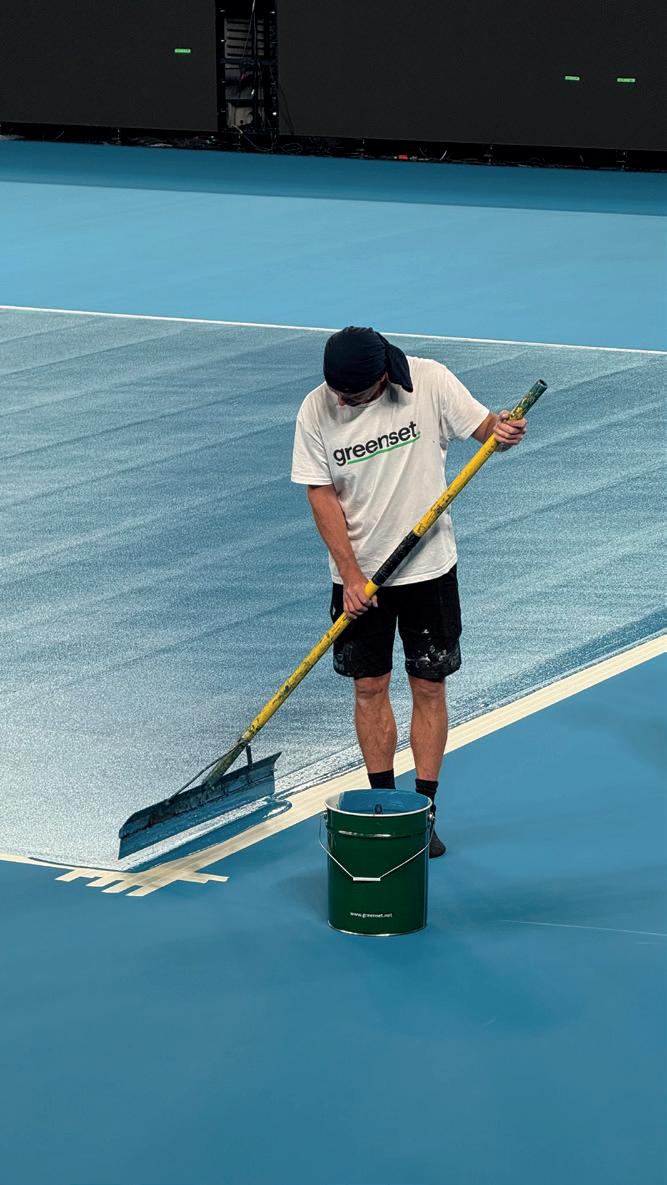
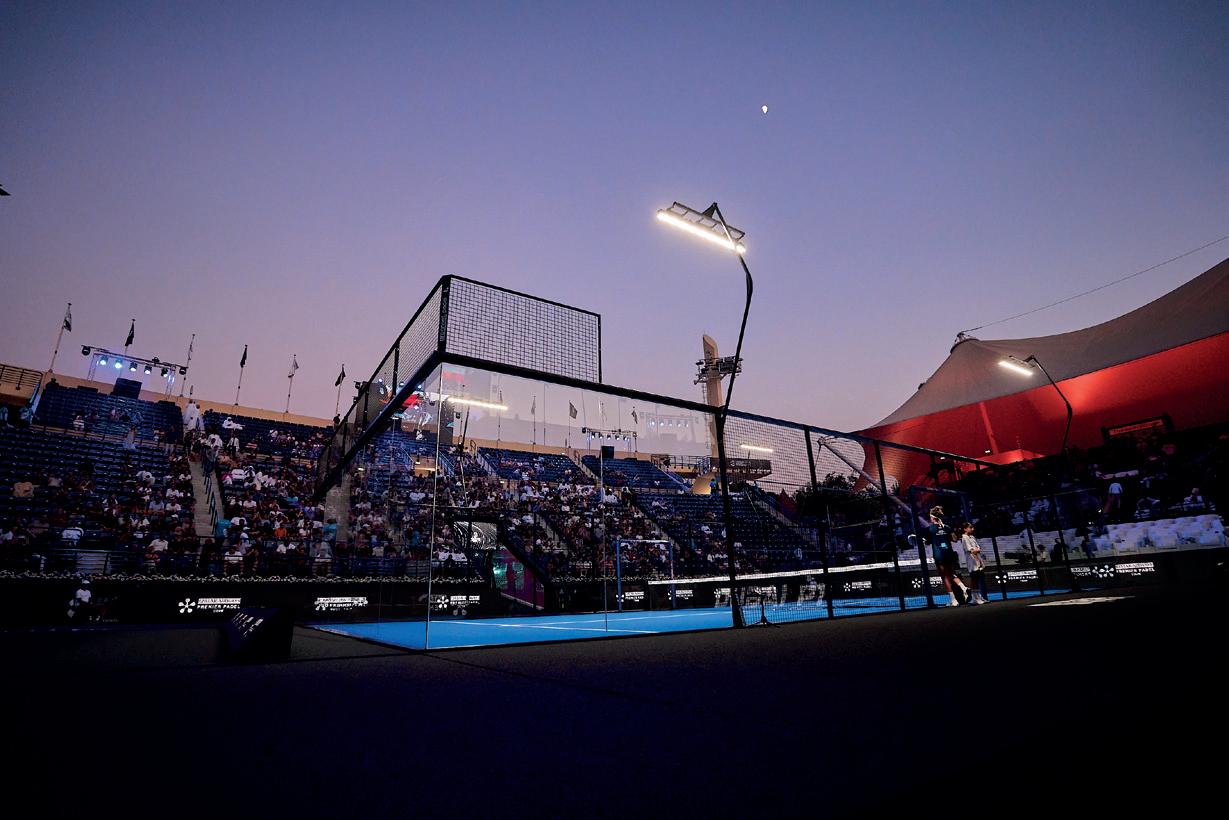
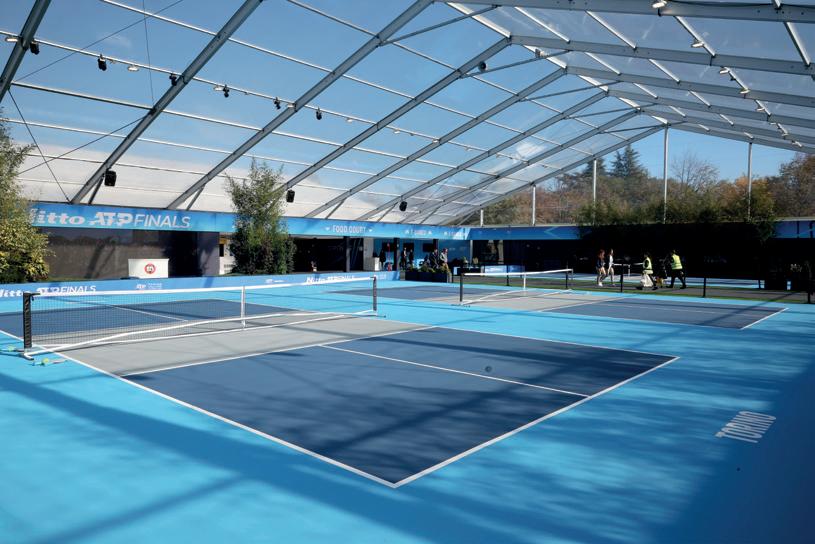
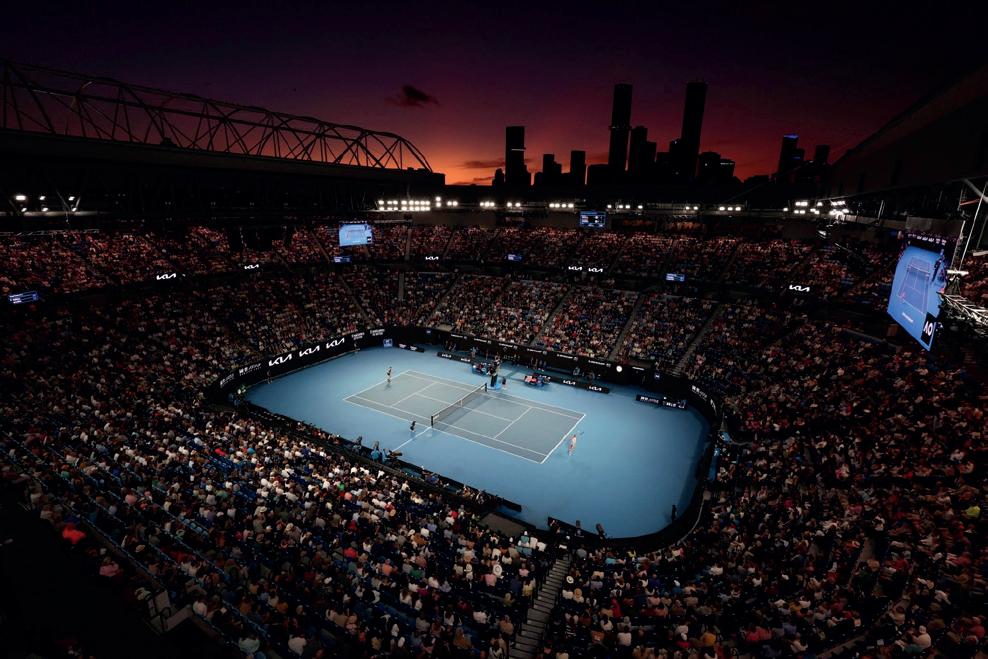



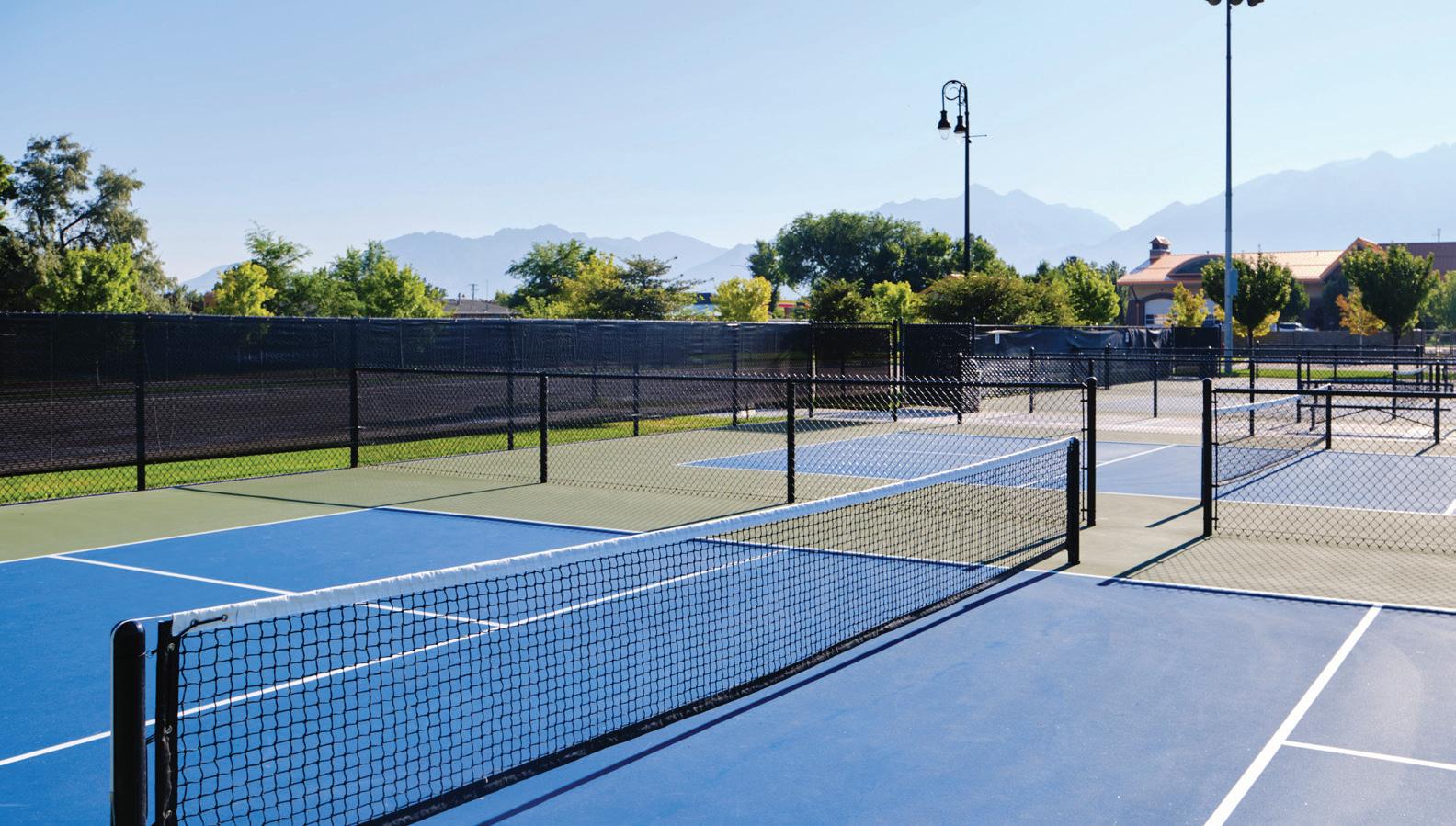
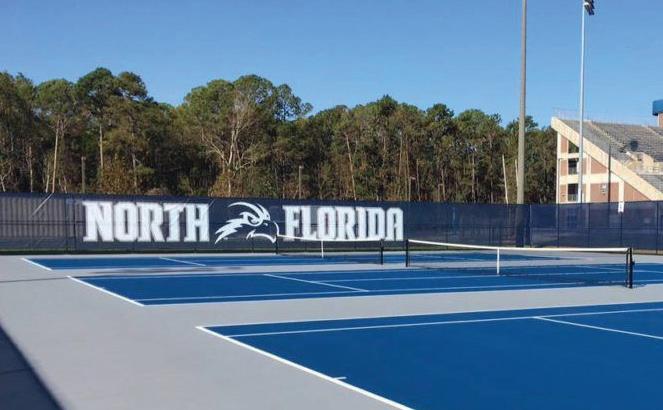
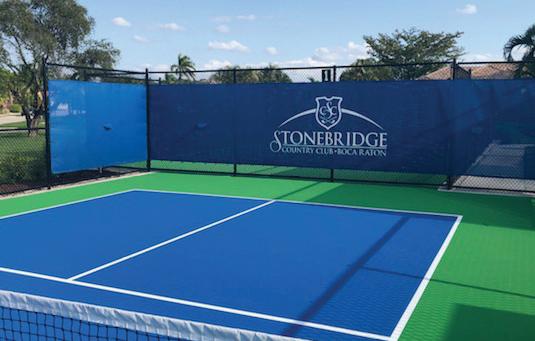
Our selection includes proprietary TUFFY, Standard VCP, Open Leno, and Closed Mesh Polypropylene, designed for various applications such as enclosing tennis and pickleball courts, practice fields, batting cages, and baseball outfield fences. Whether your priority is privacy, durability, or budget-driven, our windscreens offer the perfect solution.
Explore our full range of windscreens and find the perfect fit for your facility today!
Unmatched Durability. Unbeatable Performance. Endless Possibilities.
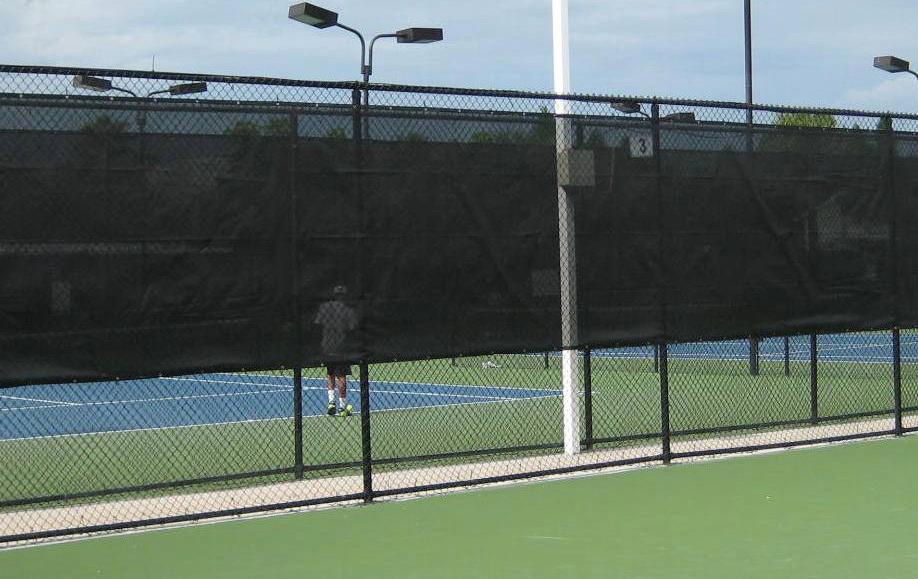
Privacy & Security: Safeguard athletes’ privacy and block unsightly views.
Durability: Withstand extreme temperatures and environmental conditions.
Brand Promotions: Display your school games, events, and enhance brand visibility.
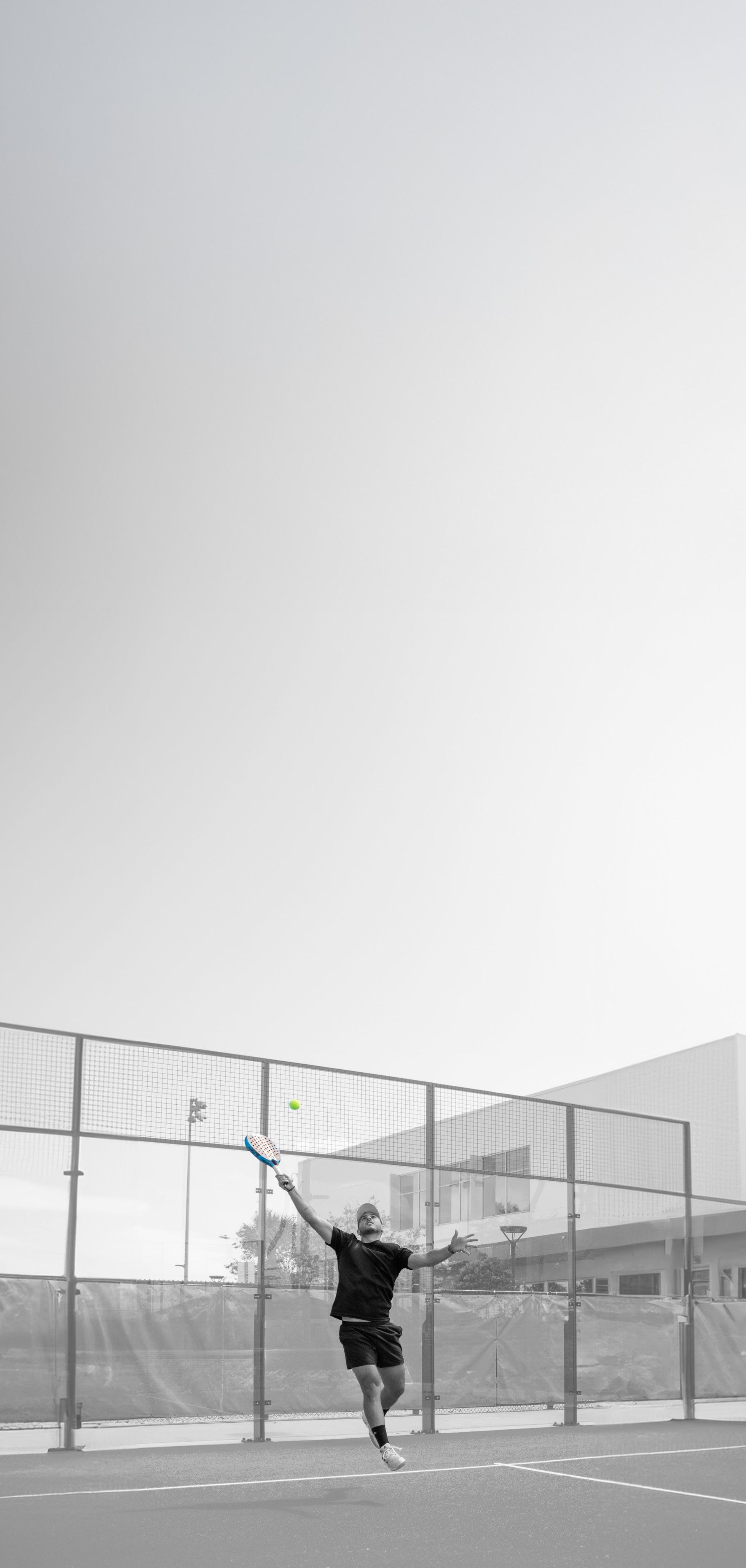
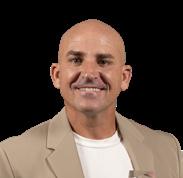
Marcos del Pilar | RSPA Padel Coach Developer & Master Professional
Padel is more than a sport. It is a movement, a revolution, and an opportunity for transformation.
Over the past nine years, I have dedicated my life to shaping the future of padel in the USA and beyond. As the head of padel and the padel coach developer for the RSPA and the creator of the RSPA padel certification content, I have had the privilege of training and mentoring hundreds of coaches, giving them the tools they need to thrive in this rapidly growing industry.
My mission is clear: to develop world-class padel coaches and managers, ensuring they step into this sport with a foundation of excellence and a guarantee of success. But beyond that, my work is driven by a deeper purpose—one that transcends the game itself. I am here to leave a legacy, to build an educational framework that impacts lives and to create a movement that fosters growth, passion and professionalism in padel worldwide.
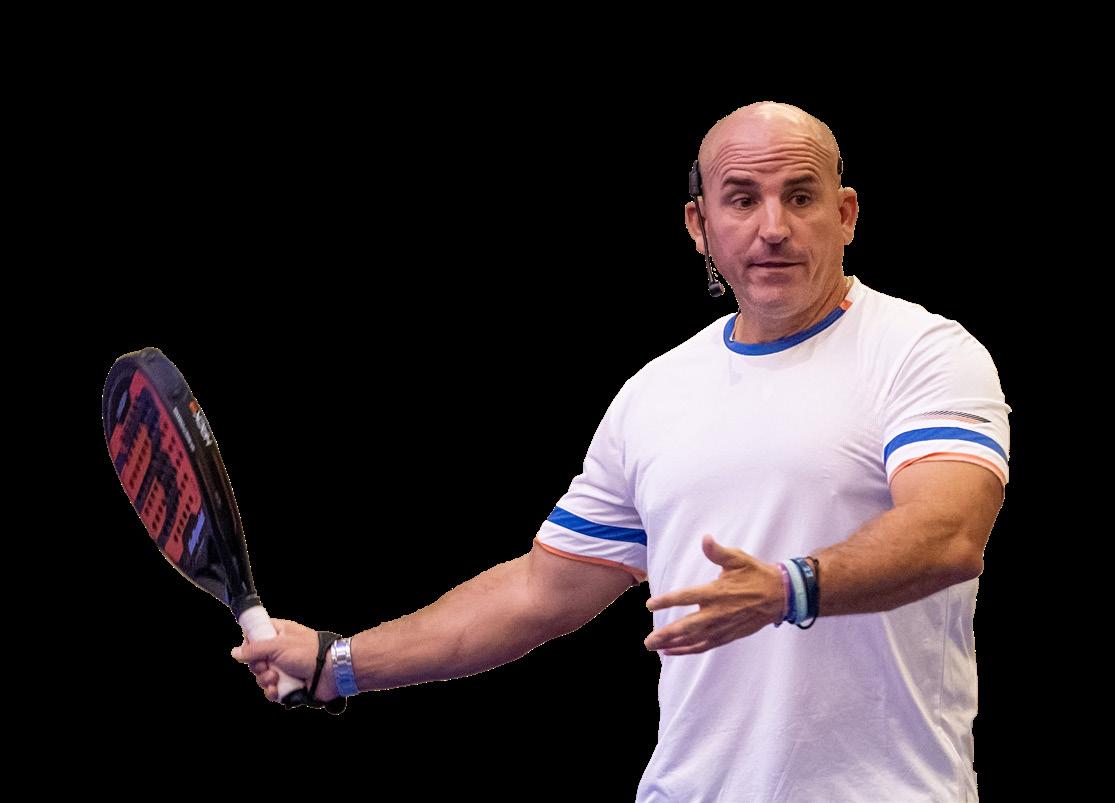
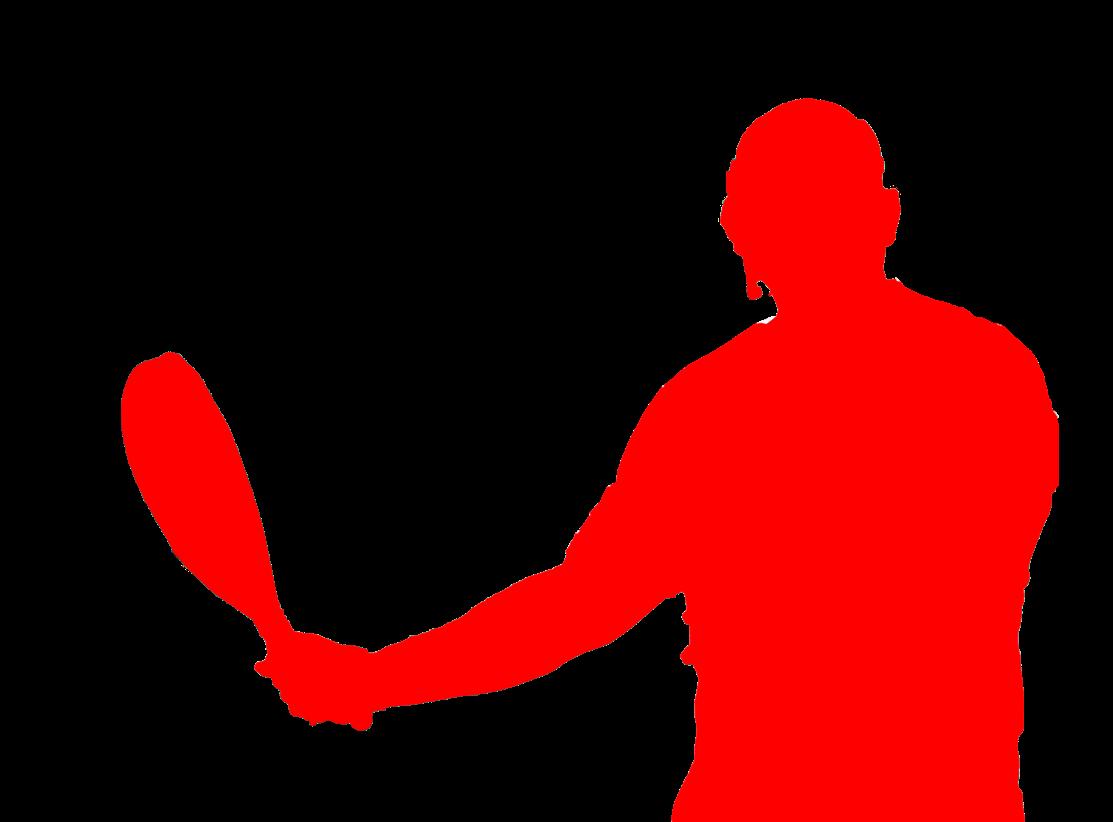
Why do I do this? Because I believe in padel’s power to change lives. I have seen first-hand how this sport can open doors, create opportunities and bring people together in ways that few other sports can. Padel is inclusive, accessible and deeply engaging, making it the perfect vehicle to inspire a new generation of players, coaches and entrepreneurs.
My commitment to education stems from my own journey. Having worked with some of the best in the industry—some of them RSPA Master Professionals—I understand the importance of proper guidance, structured learning and real-world experience. Coaches and managers are the backbone of this sport’s growth and equipping them with the right skills is essential for ensuring padel’s continued success.
New coaches entering the industry often come with enthusiasm and passion, but many underestimate the depth of knowledge and dedication required to be successful. A great padel coach is not just someone who knows how to hit a ball; they are leaders, mentors and educators. They must understand the technical aspects of the sport and the psychology of teaching, the art of communication and the business of padel management.
As an RSPA coach developer, I focus on:
• Teaching the Fundamentals: A deep understanding of biomechanics, strategy and match analysis is crucial.
• Mastering Communication: A great coach knows how to inspire and motivate players, adapting their approach to different learning styles.
• Business and Management Skills: Running a successful padel facility or coaching program requires financial literacy, marketing knowledge and customer relationship management.
• Mindset and Personal Growth: The best coaches continue to learn, evolve and push their limits, just like the best players.
One of the most rewarding aspects of my role is witnessing the transformation of a new coach into a professional who is ready to take on the world. Watching my students go on to build successful careers, open their own clubs or even train top-level players is a testament to the power of proper education and mentorship.
I do not just want to grow padel in the USA. I want to build a sustainable ecosystem that will impact generations to come. This is why I have poured my experience, knowledge and vision into creating the RSPA padel certification and serving as its coach developer. This program is designed to provide aspiring coaches and managers with a clear pathway to success, ensuring they receive the highest quality education possible. We also provide real tools and templates to start running padel programs right away.
Legacy is about creating something that lasts beyond our own time. It is about laying the foundation so that future generations can continue to build, innovate and elevate the sport. By educating and certifying coaches with a structured program, we are not just developing individuals. We are shaping the entire future of padel worldwide.
If you are considering stepping into the world of padel, know this: the sport has the power to change your
life. Whether you dream of becoming a professional coach, managing a worldclass facility or simply making an impact in your community, padel offers you an unparalleled opportunity to do so.
Here are three key lessons I want every aspiring coach to remember:
1. Never Stop Learning: Success is not a destination—it is a journey. The best coaches are always students of the game.
2. Impact Over Income: When you focus on adding value and making a difference, success and financial rewards will follow.
3. Build Relationships: This sport is about people. Your ability to connect, inspire and lead will define your success more than any technical skill.
I invite you to be part of this movement. Whether you are a former tennis coach looking to transition into padel, a passionate player wanting to turn professional or a business-minded individual seeking new opportunities, the RSPA padel certification is your gateway to a thriving career in padel.
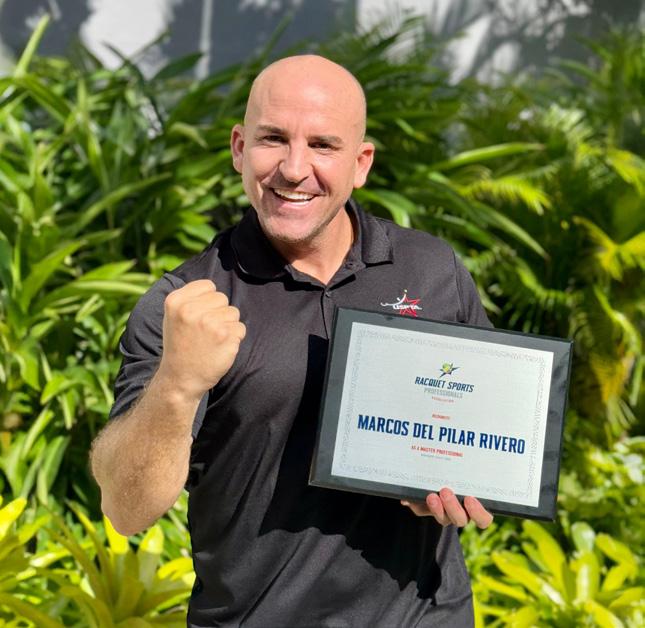
Together, we are not just teaching a sport. We are building a legacy. Join me in shaping the future of padel and making an impact that will last for generations to come.
Marcos del Pilar
The Godfather of Padel in the USA
See you all soon.
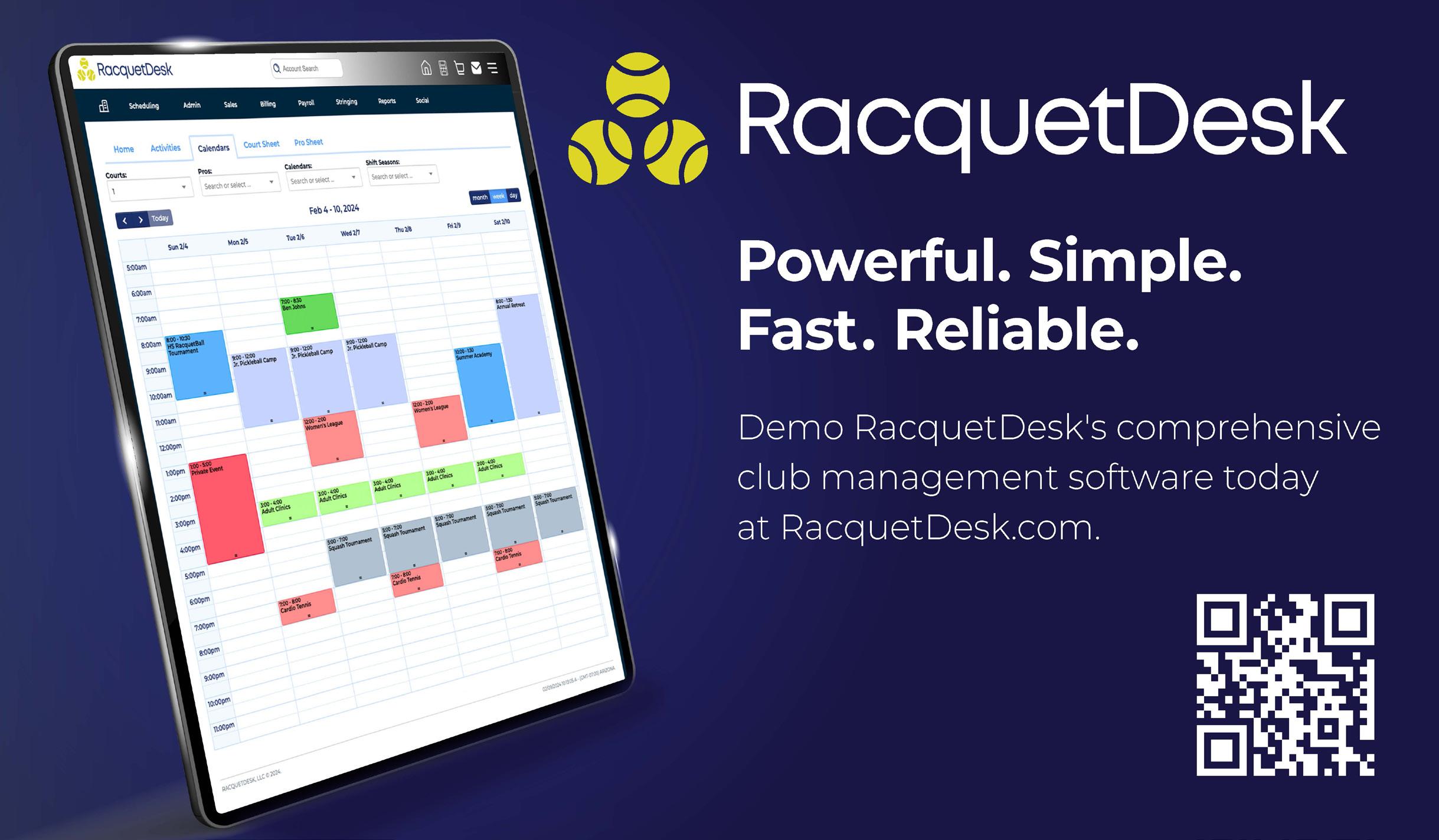

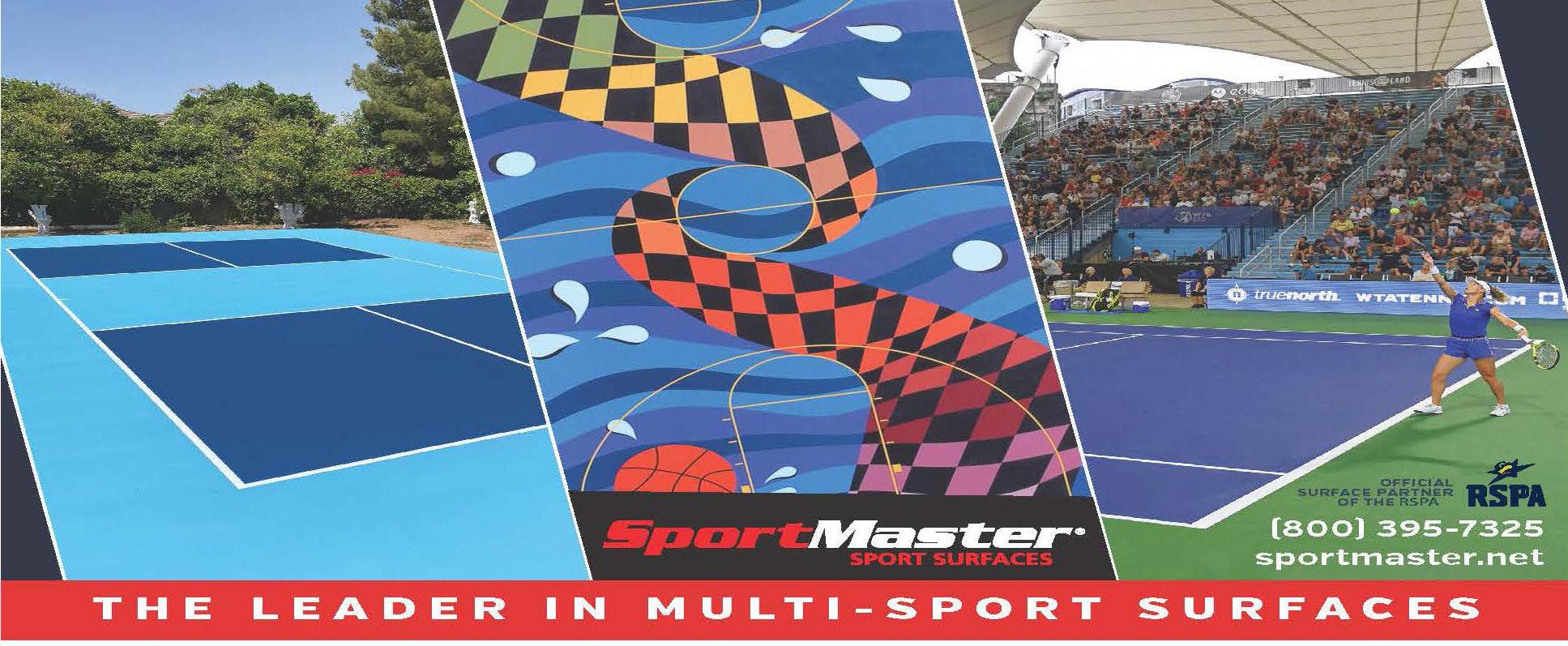
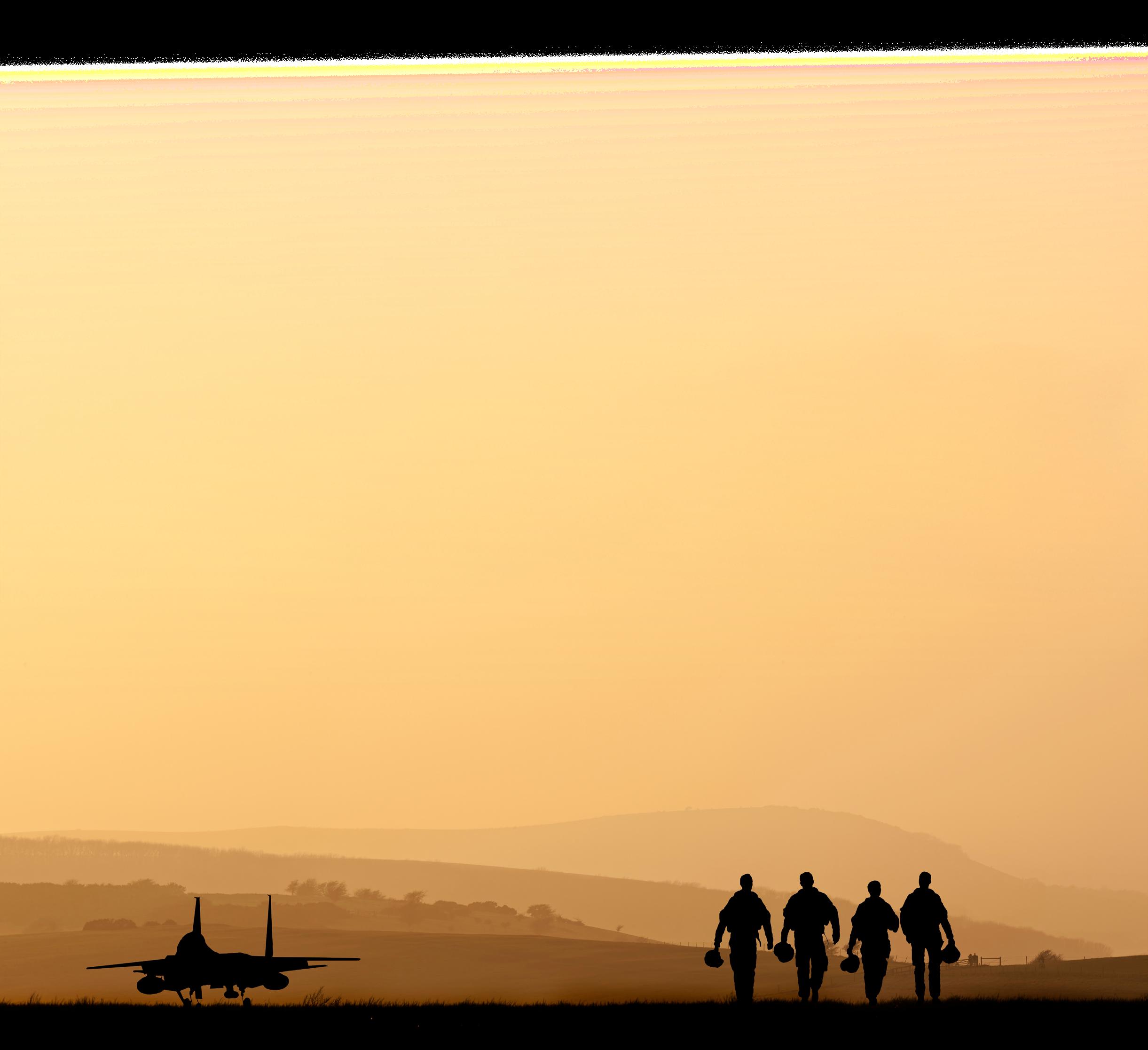
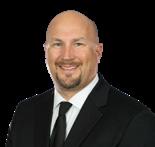
The Racquet Sports Professionals Association honors the dedication and service of all active and retired military personnels, first responders and licensed teachers by offering a 25% discount on annual membership dues. Eligible individuals can apply for this discount by calling membership at 407-634-3050, option 2. Among the distinguished members benefiting from this initiative is Dr. William Aronson, a true example of RSPA’s heroes.
Dr. William “Bill” Aronson is a name synonymous with excellence in racquet sports, sports psychology and adaptive coaching. With a career spanning nearly four decades, Aronson has significantly impacted the world of tennis, adaptive sports and sports education. His vast experience, coupled with a passion for mentoring and teaching, has earned him a reputation as one of the most dedicated professionals in the industry.
Bill Aronson has been a Certified Elite Tennis Professional with the Racquet Sports Professionals for 39 years. From both the RSPA New England Division and Florida Division, he has continuously worked to elevate the game of Tennis. Also, he is a Pickle Ball Certified Professional.
His early career saw him working at the prestigious Harry Hopman Tennis Academy at Saddlebrook, where he was mentored by industry greats Howard Moore, Alvaro Betancur, Roland Jaeger, Tommy Thompson and Neil Scannell. Some of the most renowned players in the game, including Jim Courier, Martina Hingis, Jennifer Capriati, Sacha and Mischa Zverev and Pete Sampras trained out of the Harry Hopman Tennis Academy with their personal coaches.
Beyond Tennis, Aronson is also a PSIA Certified Ski Professional (PSIA), showcasing his diverse expertise in sports coaching since 1988. He has taught at some of the most renowned
locations in the country. Bill trained under the legend Hal O’Leary, the father of adaptive skiing, from Winter Park.
Dr. Aronson’s dedication to service extends far beyond sports. A Gulf Warera Veteran, he served on active duty as a clinical psychologist and captain in the United States Air Force from 1996 to 1999 at Offutt Air Force Base in Omaha, Nebraska. His work in the military was driven by his passion for improving the mental health of service members and helping them adjust to the challenges of military life.
Following his military service, Aronson continued his mission to support others by working for the VA in Miami as a research health scientist, specializing in spinal cord research. His background in psychology and sports science has made him an invaluable resource in adaptive sports, where he has coached individu-
als with disabilities, including veterans, wheelchair users, visually impaired and individuals on the autism spectrum, and he has worked in sports science in a number of impressive roles.
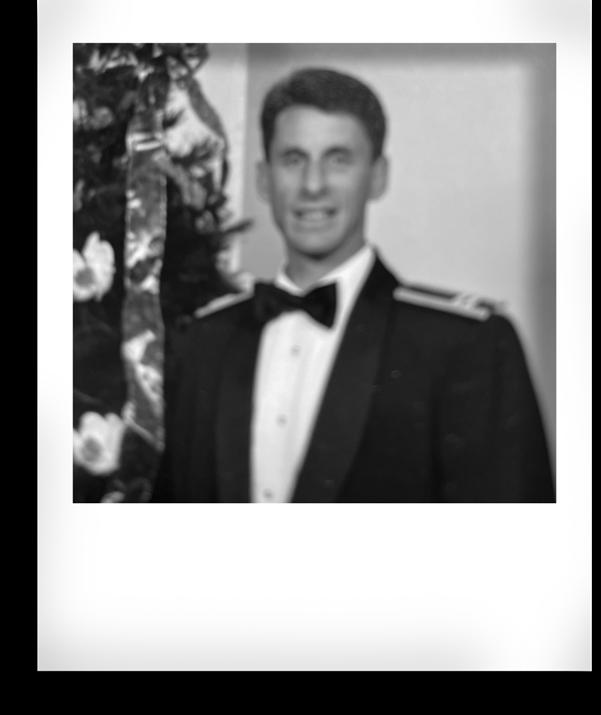
Tennis has provided Dr. Aronson with opportunities to travel and teach across the globe. His coaching journey has taken him to Cuba, Malaysia, Jamaica, Thailand, Australia, Dominica, Venezuela, Argentina, Brasil, Uruguay, Israel, England, Dominica, Nevis and St. Kitts and other countries, where he has shared his expertise and passion for racquet sports. It was during his travels in Uruguay that he met his wife, further enriching his global experiences. Bill was the head men’s tennis coach at Springfield College, head women’s tennis coach at the University of Lowell and assistant men’s tennis coach at the University of Rochester.
Domestically, he has directed summer camps in Maine and New Hampshire, promoting healthy living through sports. His leadership in these programs has helped countless young athletes develop their skills and foster a love for the game.
Dr. Aronson’s impressive academic credentials are highlighted by a PhD from CSPP-Fresno in clinical psychology with a specialty in health and behavioral medicine. His research has focused on athlete mental health, including studies on stress levels in collegiate tennis players (thesis) and self-esteem in retired athletes (dissertation).
His contributions to sports education extend to the classroom, where his courses have covered subjects ranging from sports psychology, sport ethics, to human growth and development, shaping the next generation of sports professionals.
Dr. Aronson has been a leader in adaptive sports, particularly in Wheelchair tennis. He founded the Boston Wheelchair and Tennis Association, conducted clinics at the International Tennis Hall of Fame and served as a tournament director for the Caracas Challenger in Venezuela. His extensive work with special needs athletes, including those with autism and visual impairments, has been instrumental in making racquet sports more accessible to all. He is a Certified Special Olympics Tennis Coach.
Currently residing in both Colebrook, New Hampshire and Miami, Florida, Dr. Aronson continues to be an active force in the tennis community. He has served as a tennis professional for various towns in New Hampshire. He worked as a tennis professional for the Eastern Slope Inn in North Conway and Attitash Mountain Resort in Bartlett. His lifelong commitment to coaching, mentoring and advocating for adaptive sports is a testament to his passion for both sports and service.
Dr. William “Bill” Aronson’s career is a remarkable blend of professional excellence, military service, academic contributions and a deep-seated dedication to inclusivity in sports. His impact on the world of racquet sports and beyond is a legacy that will inspire generations to come.
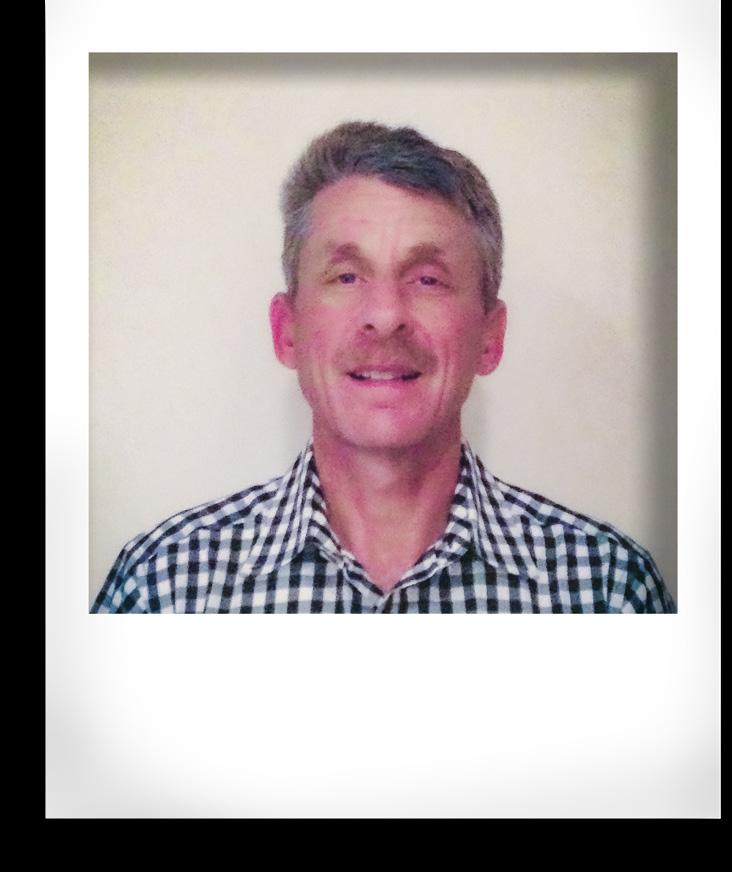
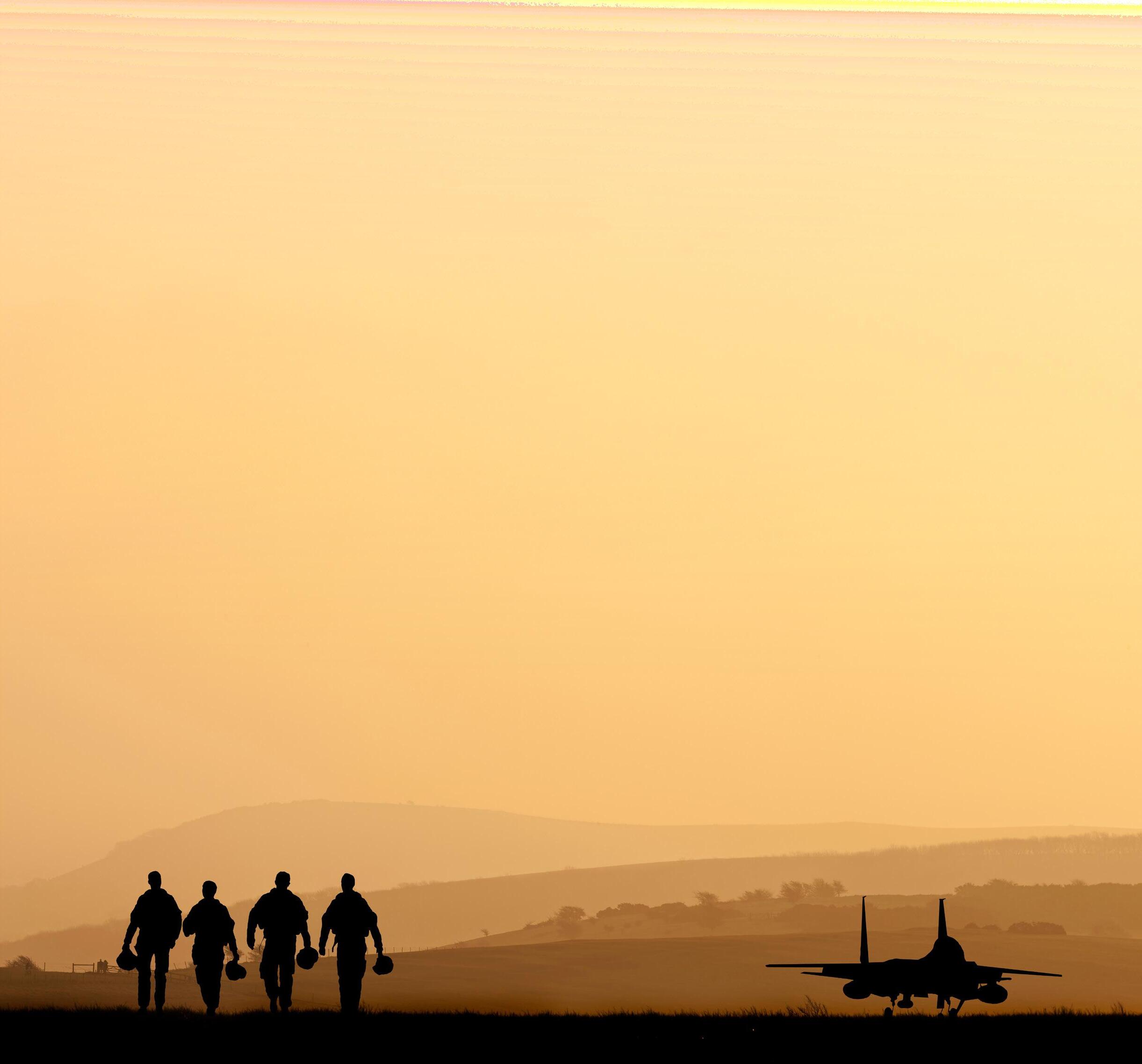
BOARD OF DIRECTORS